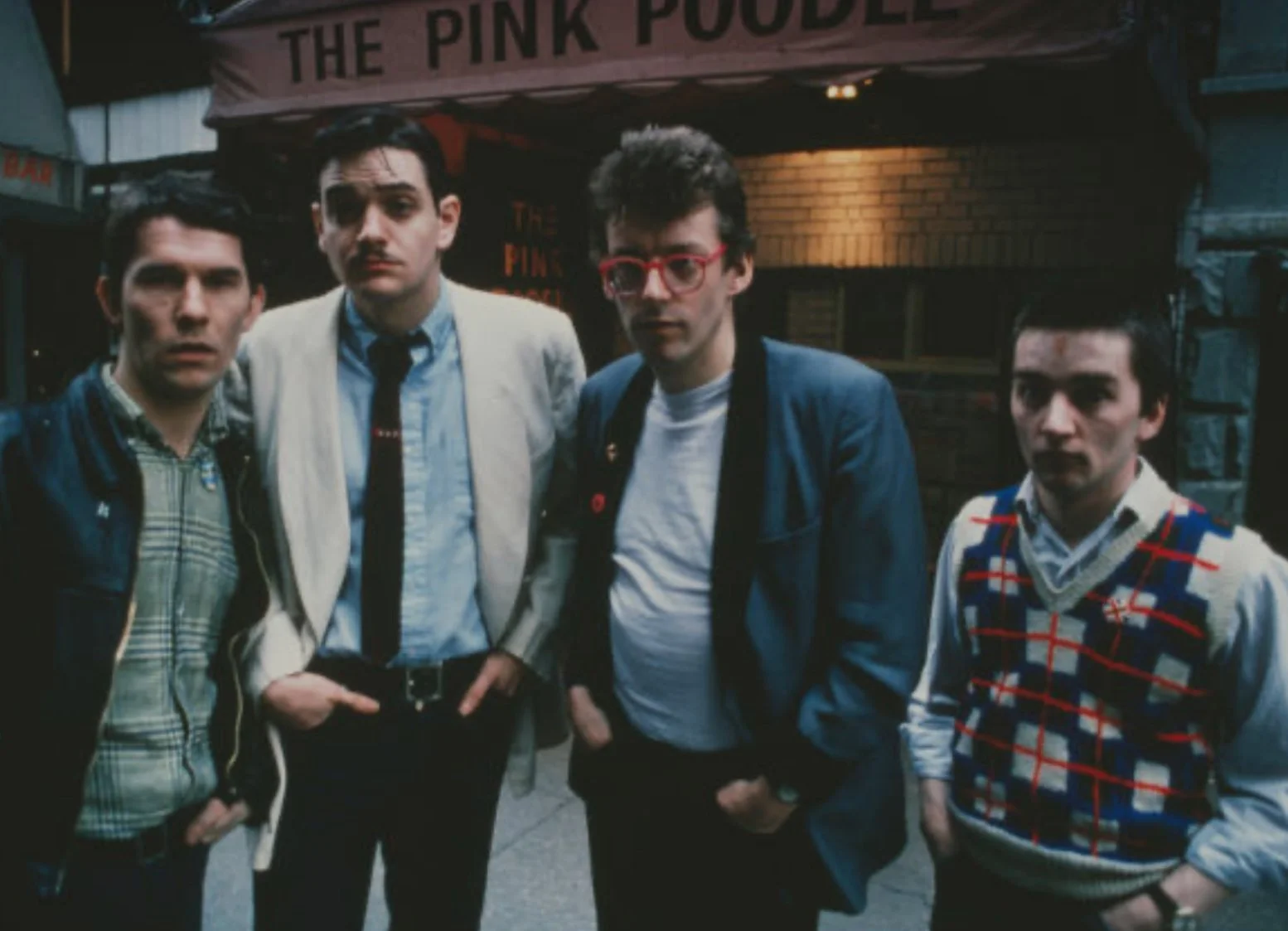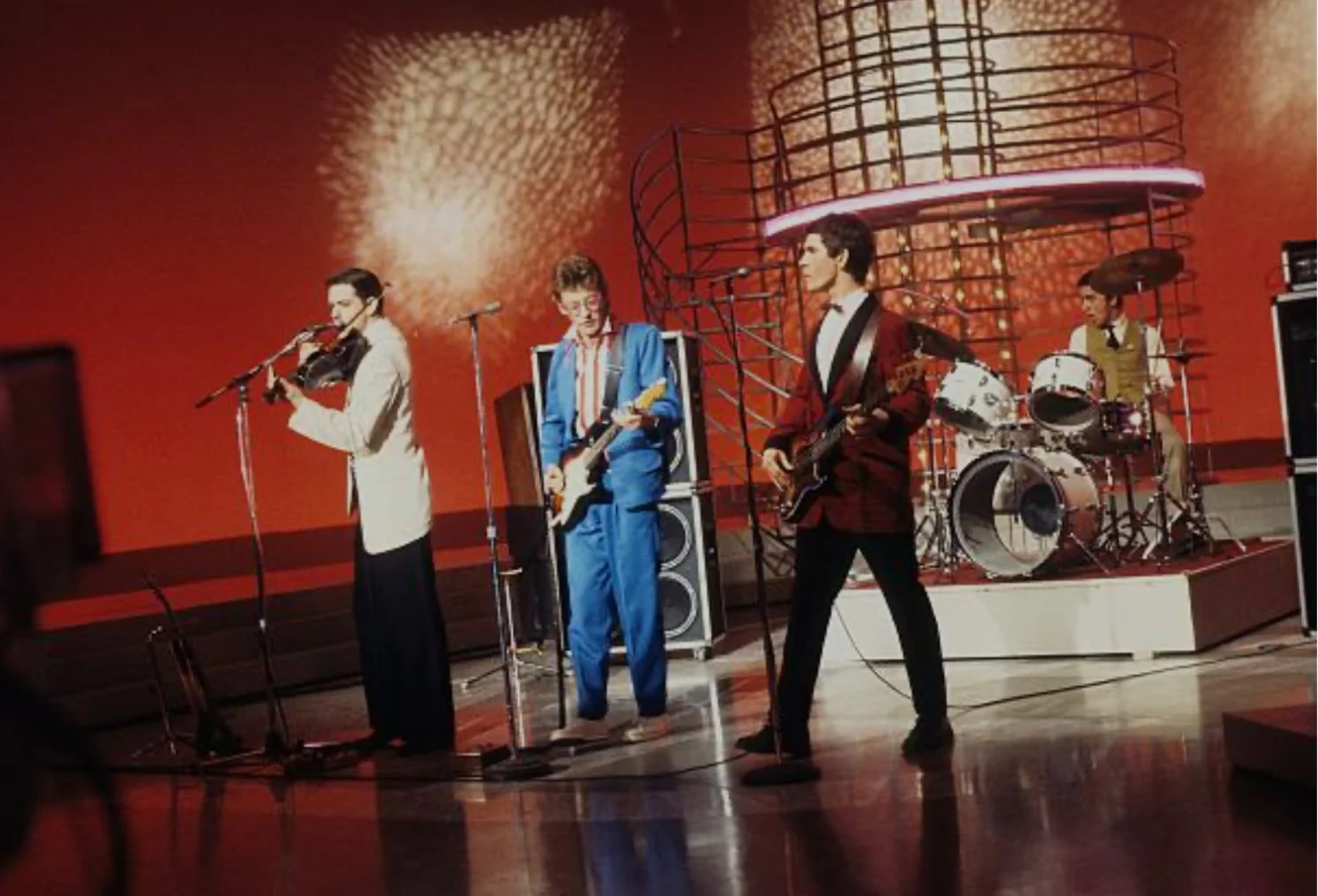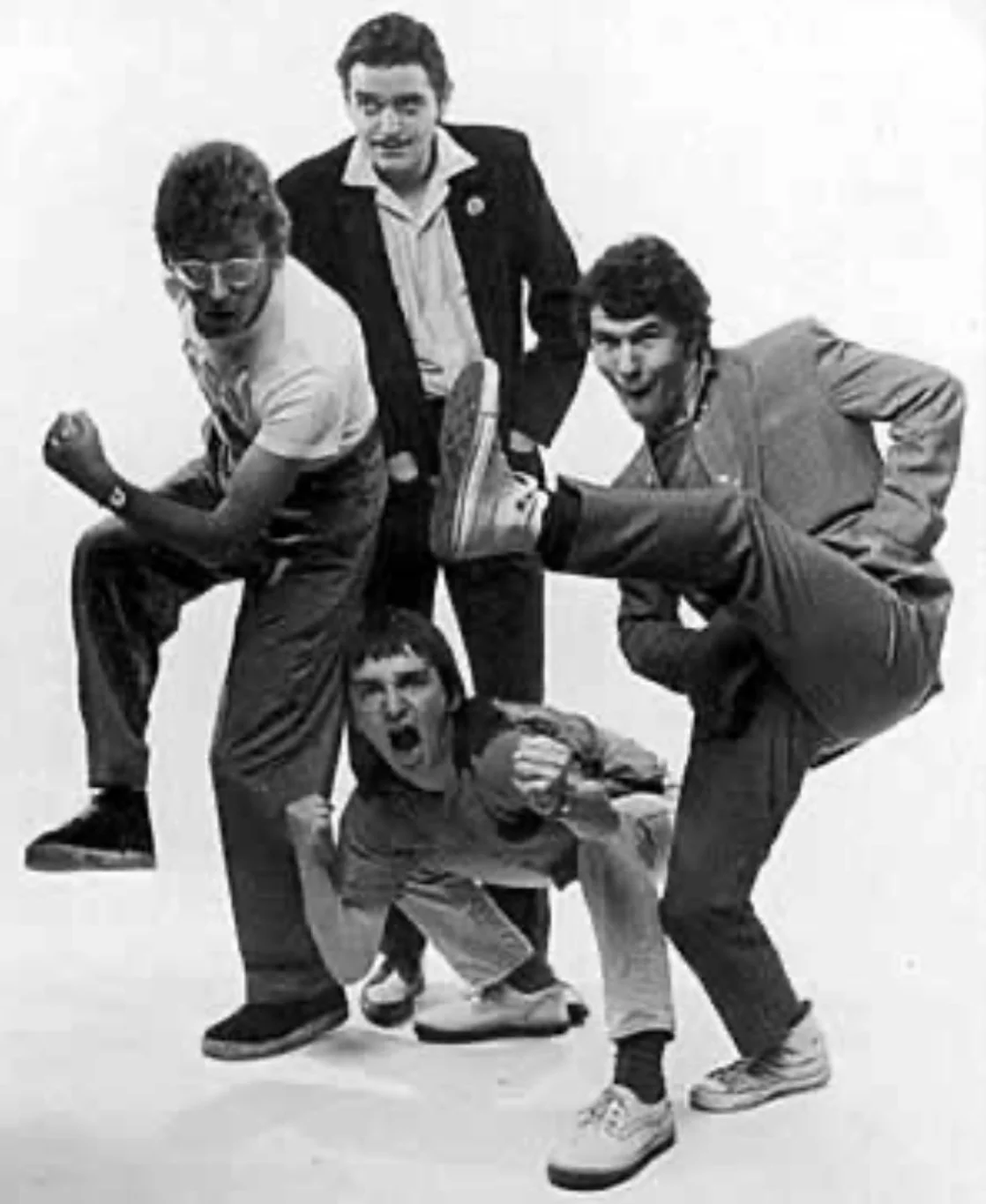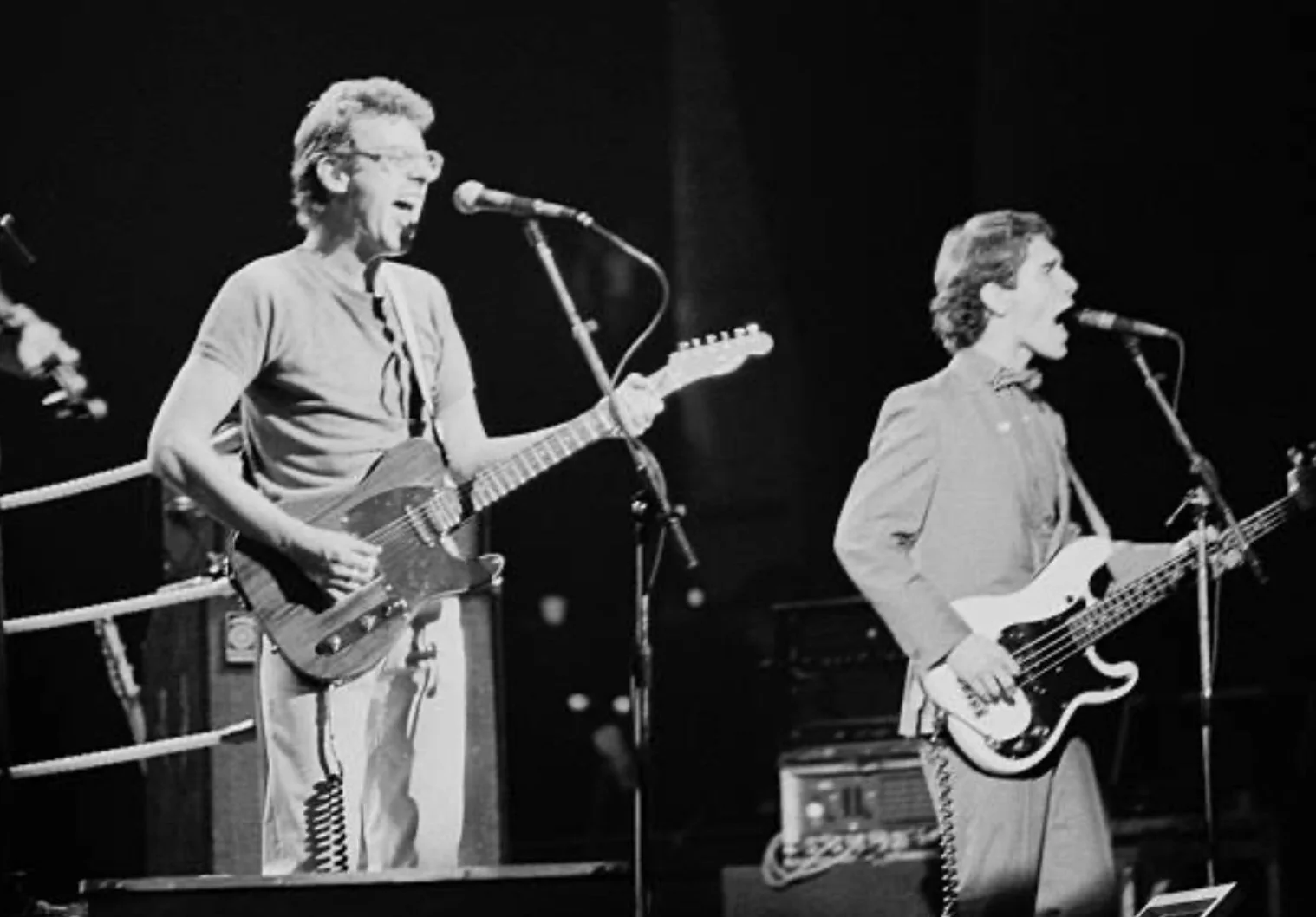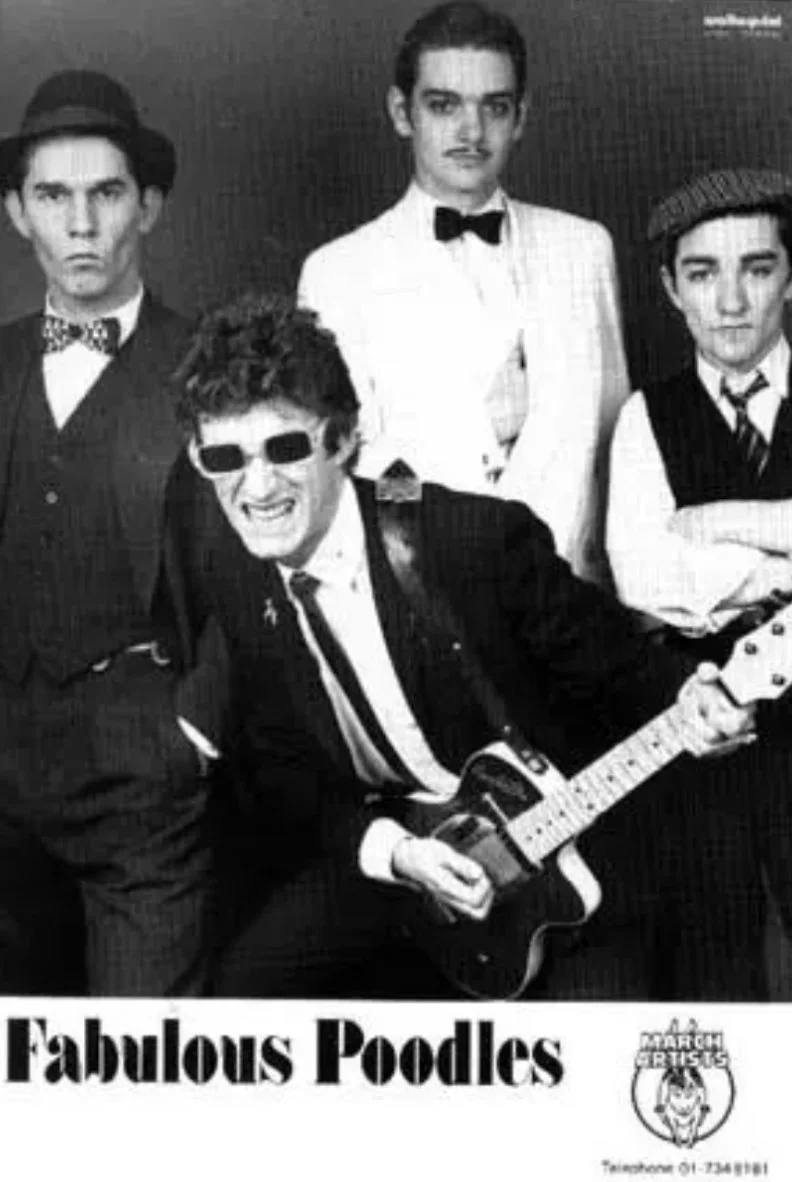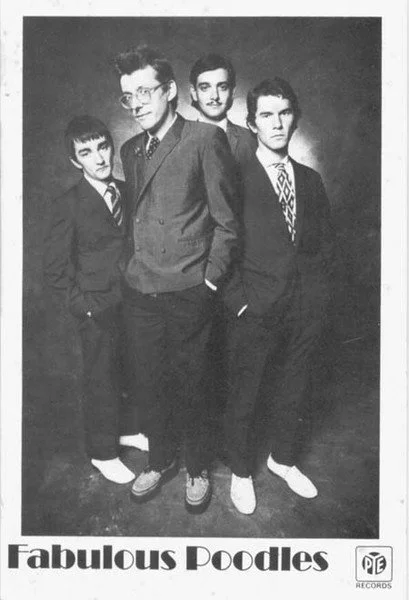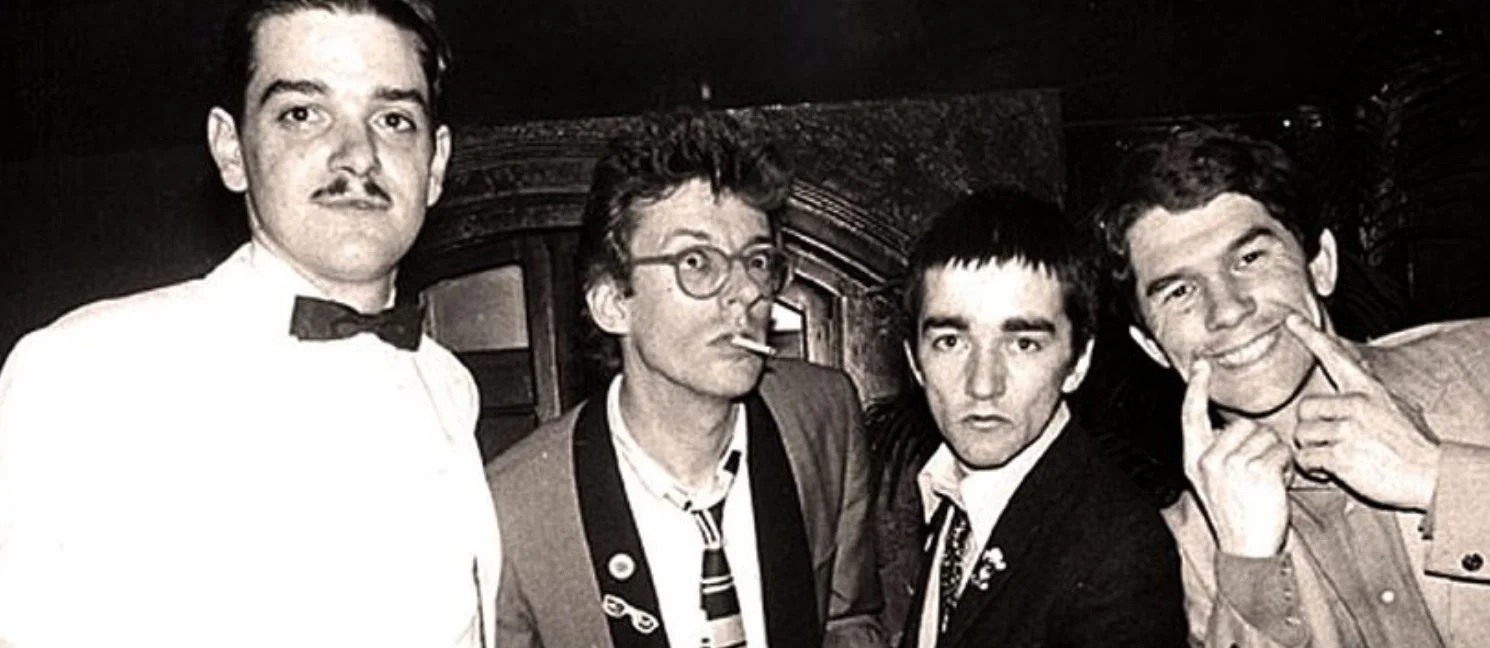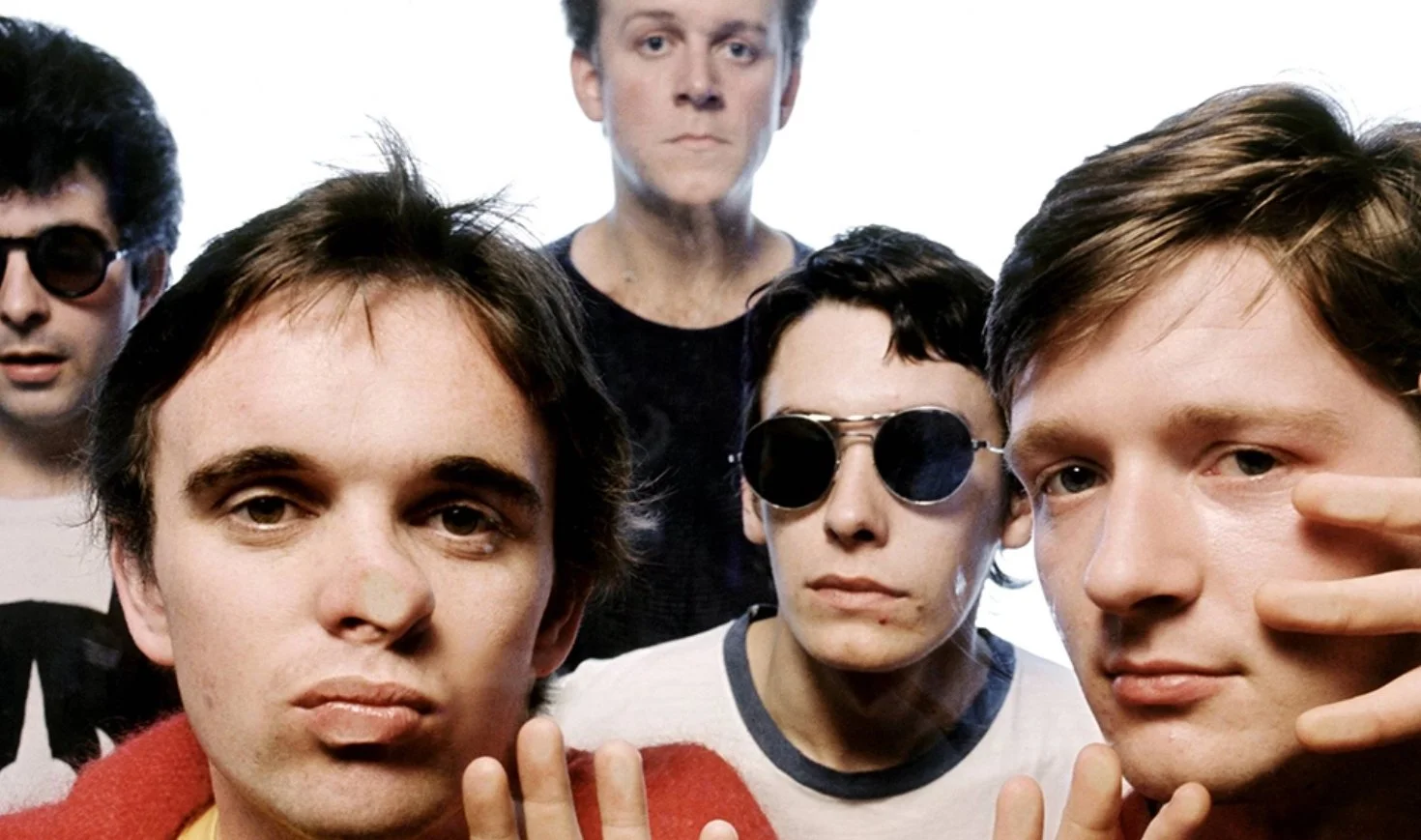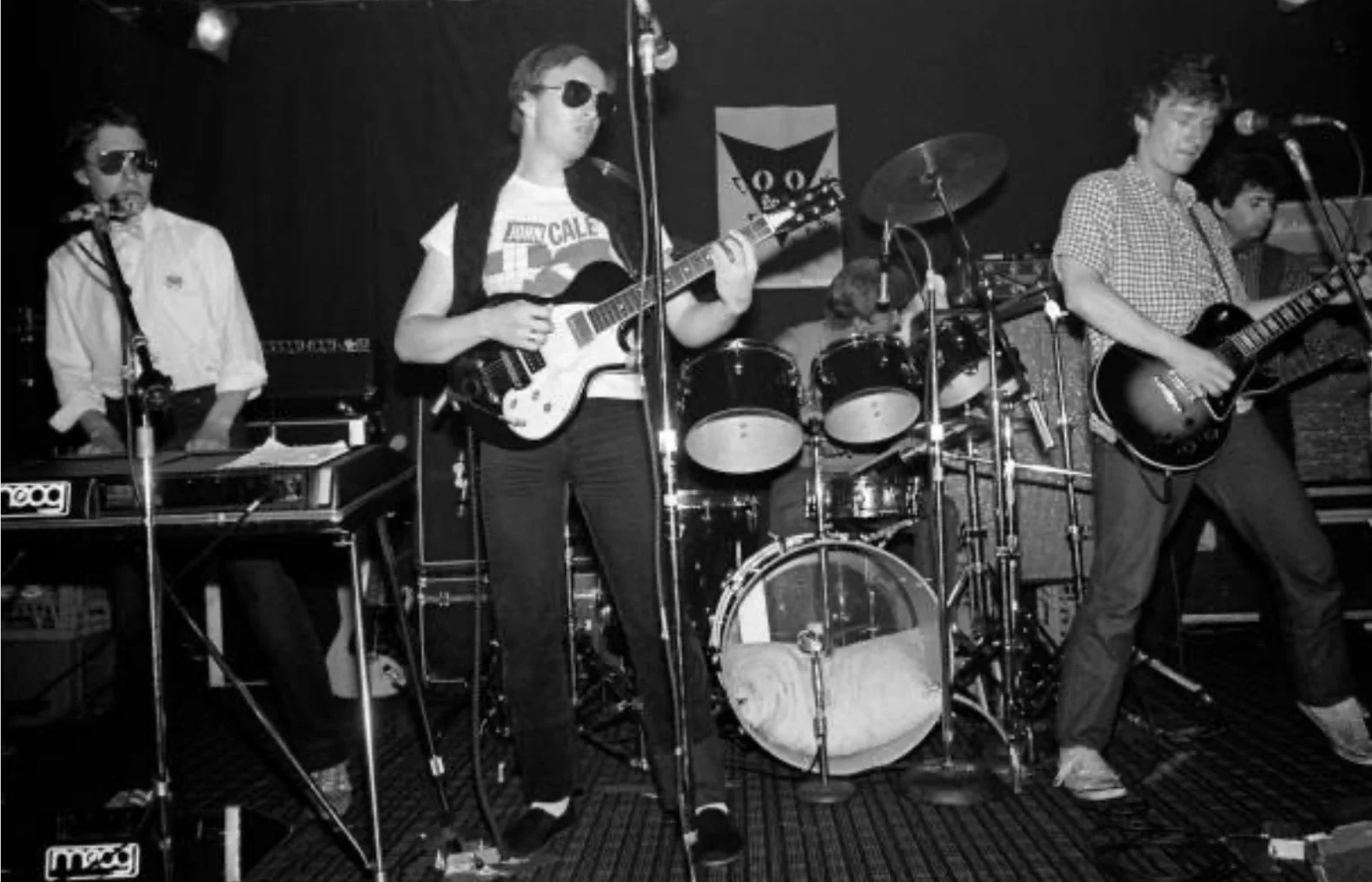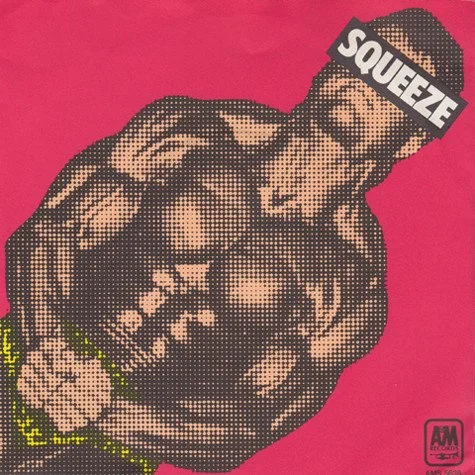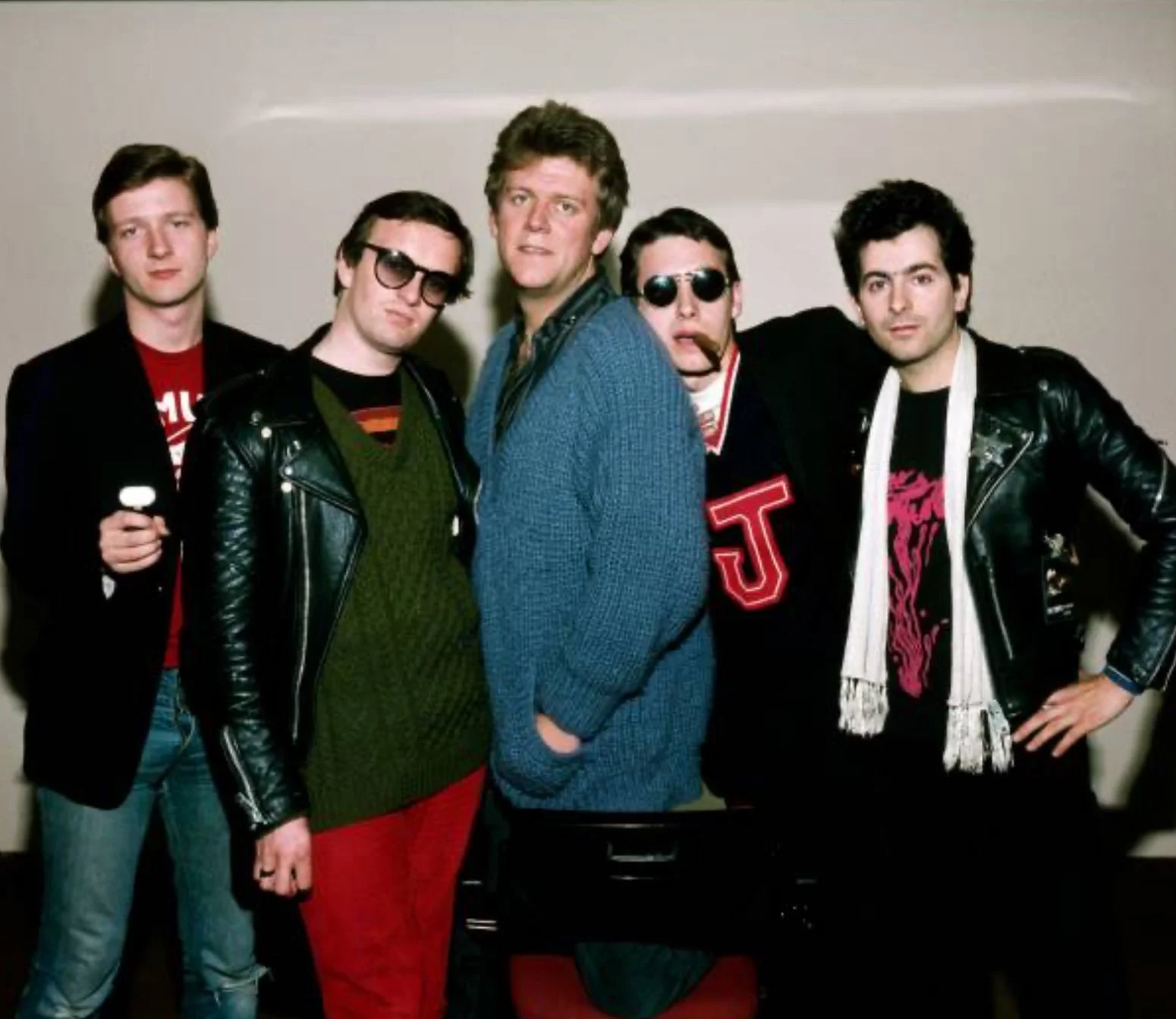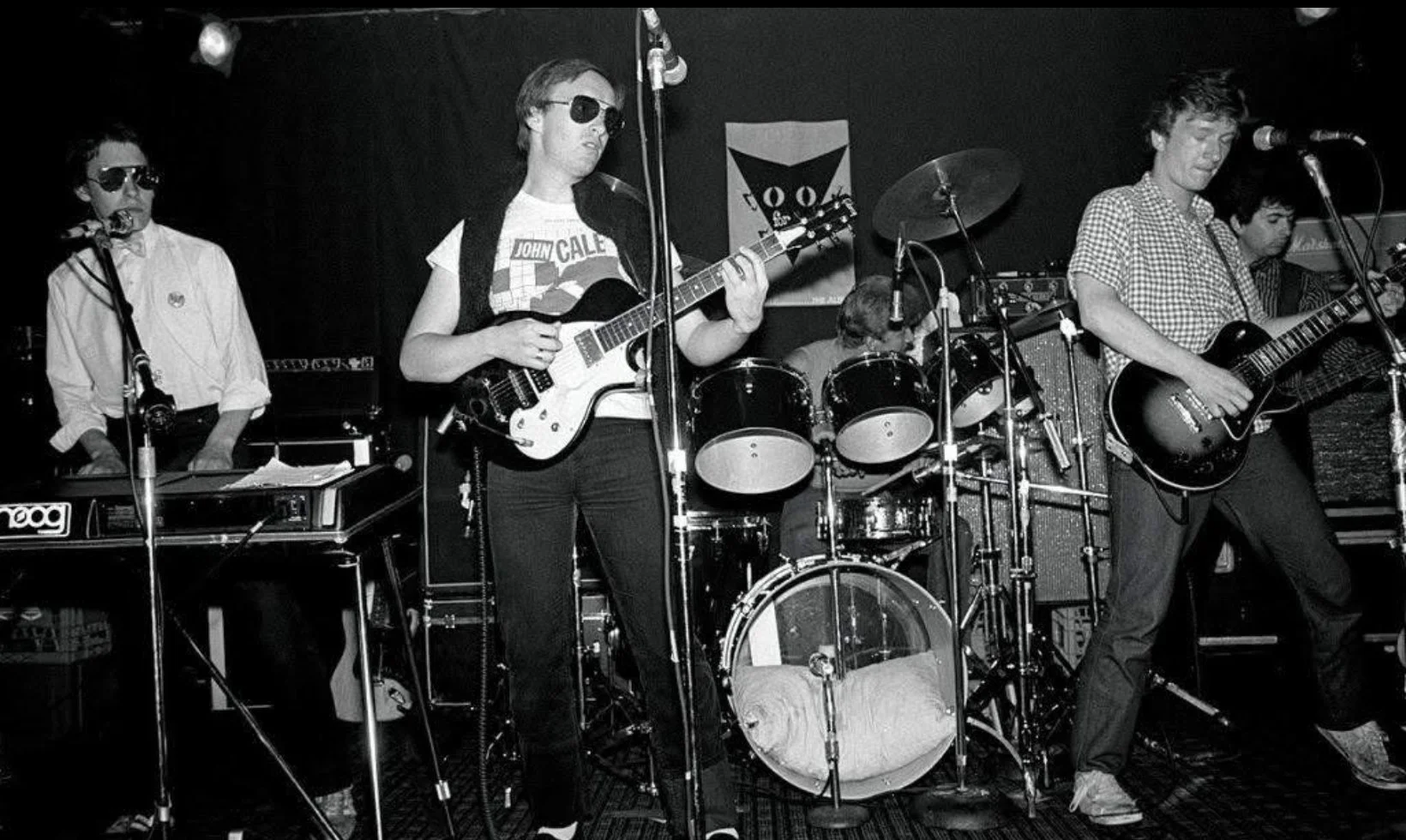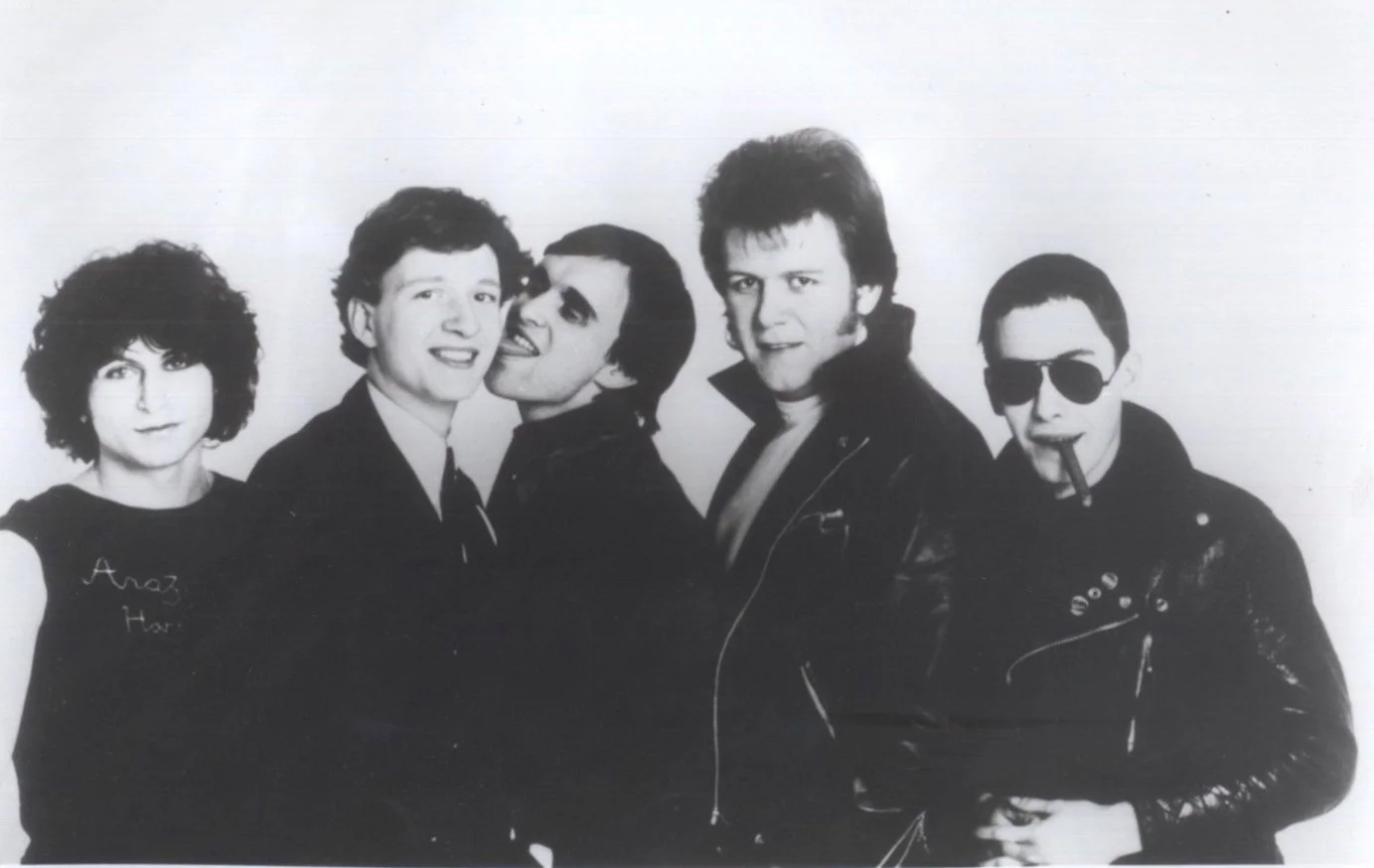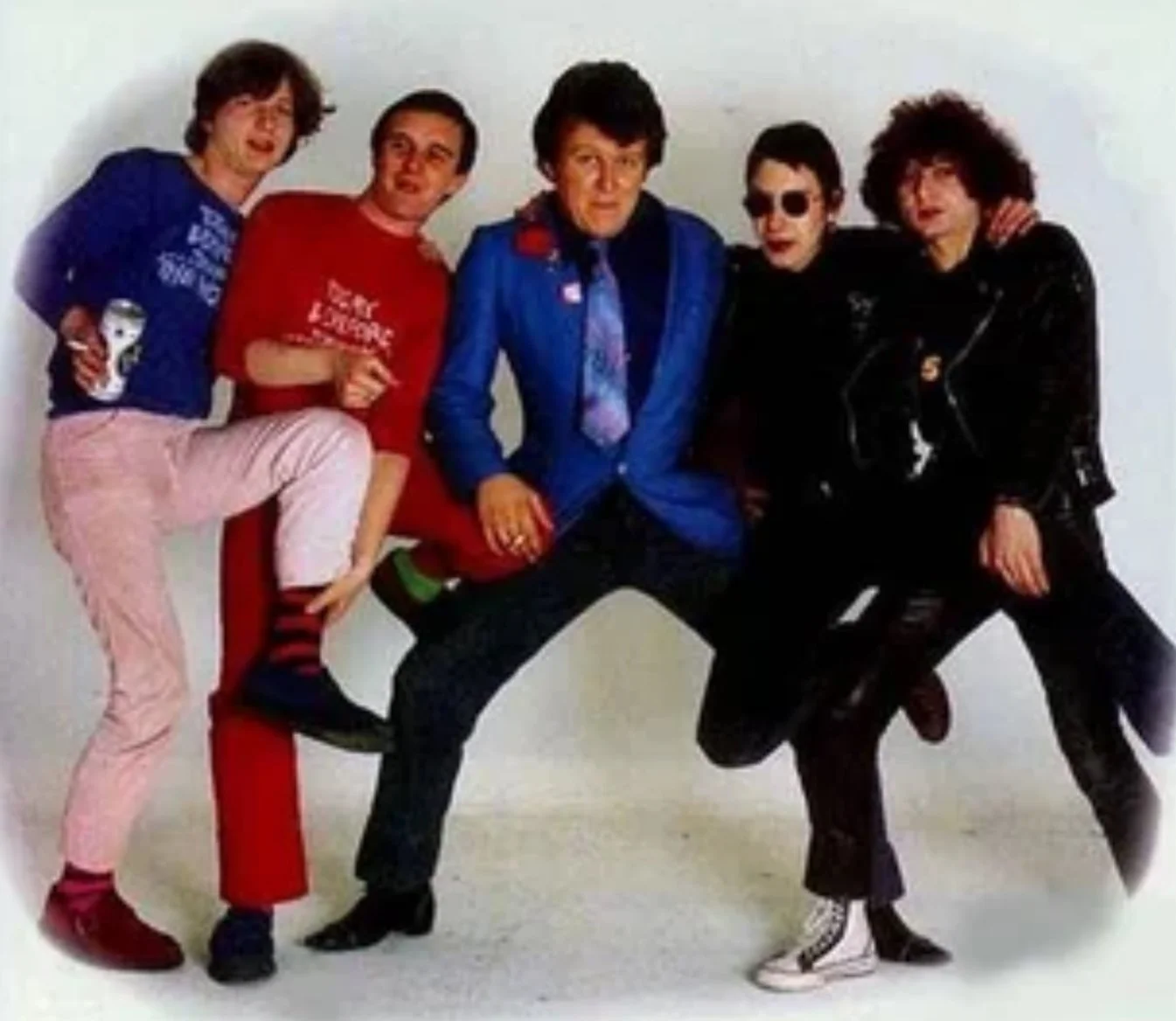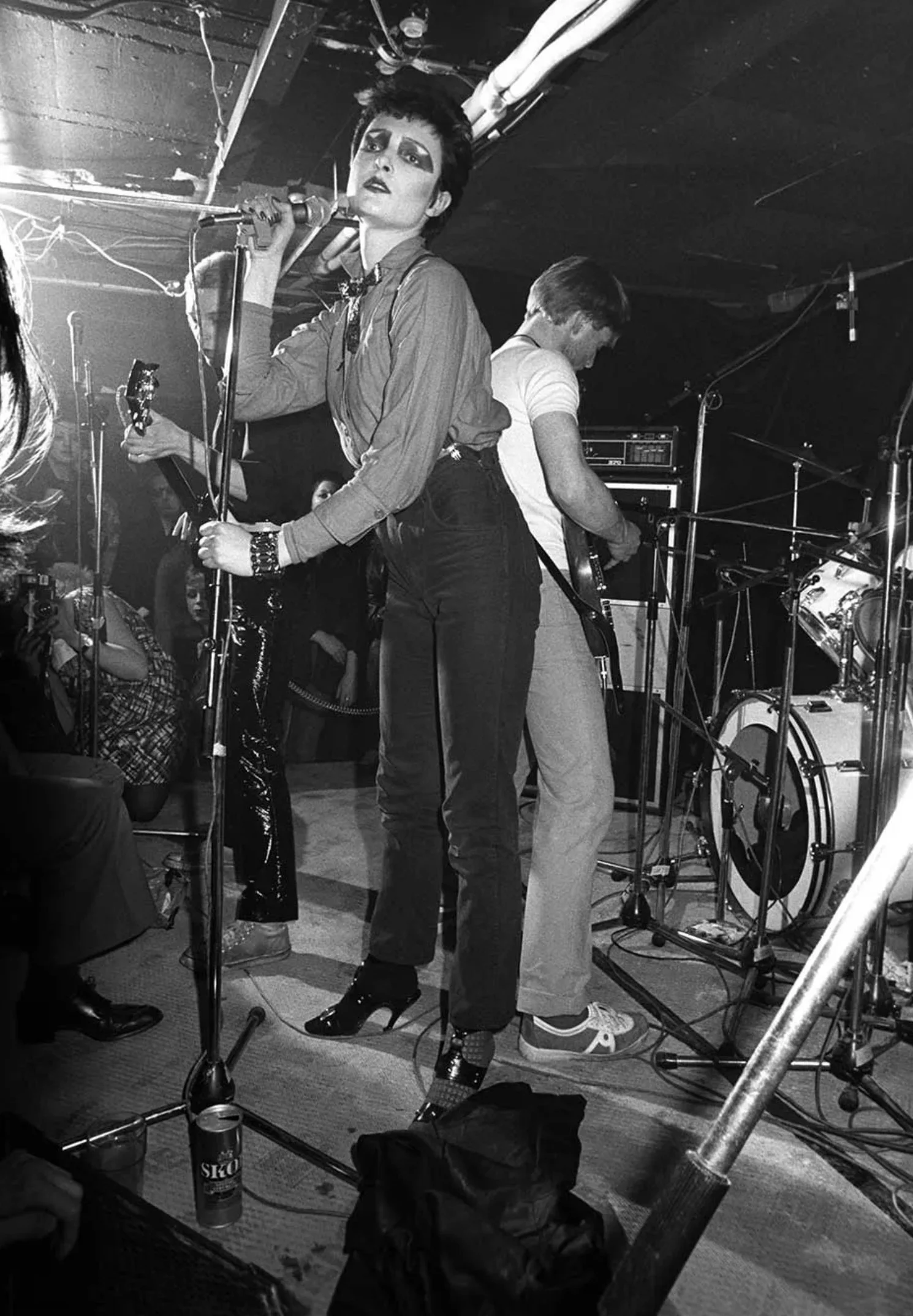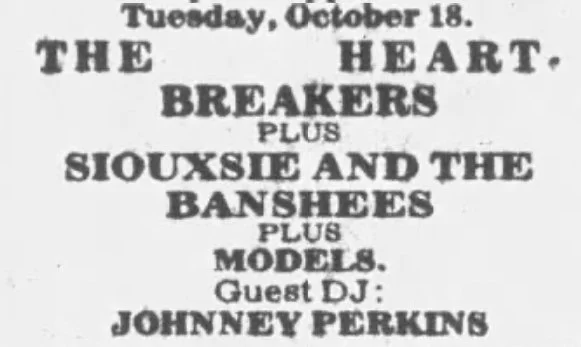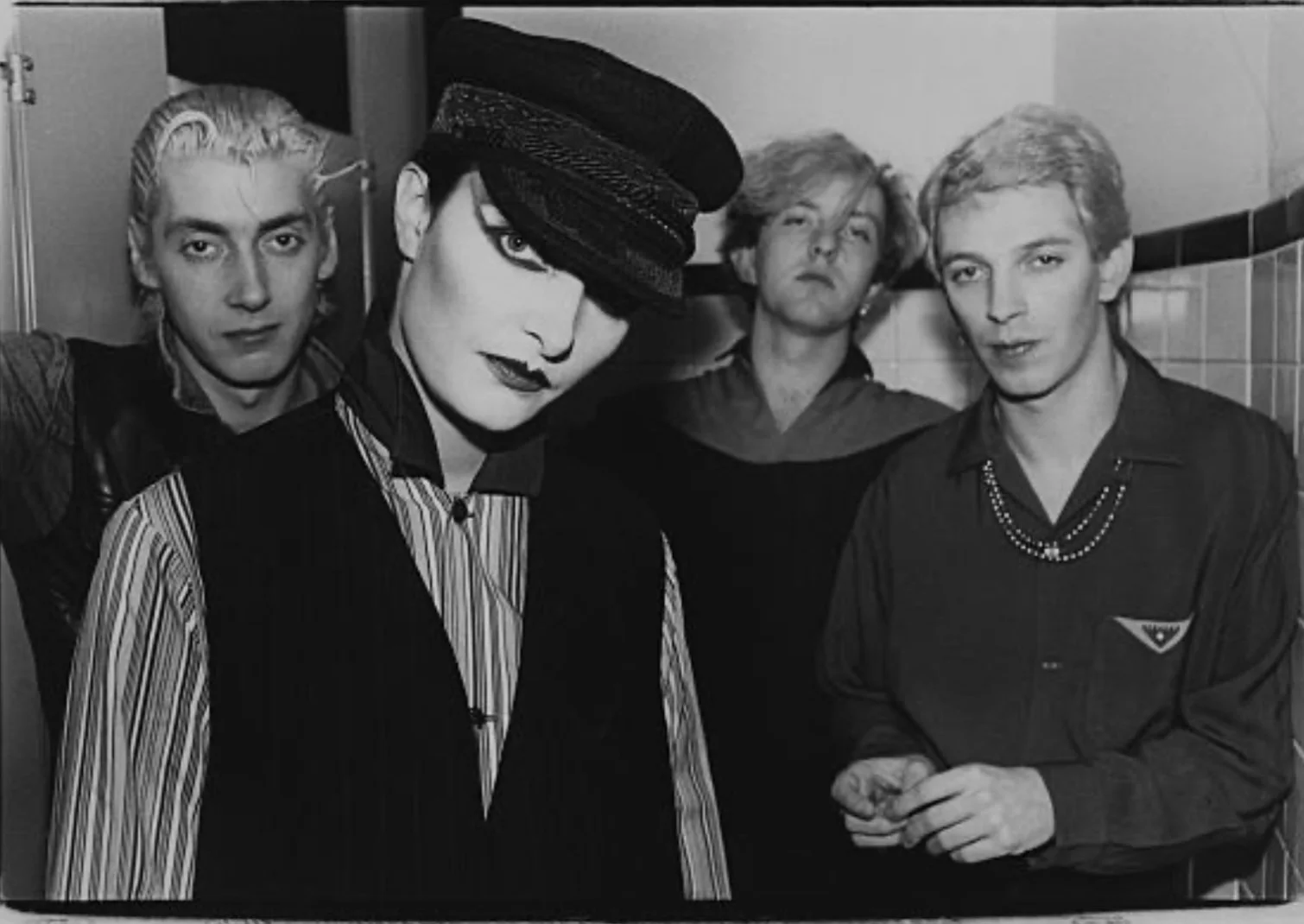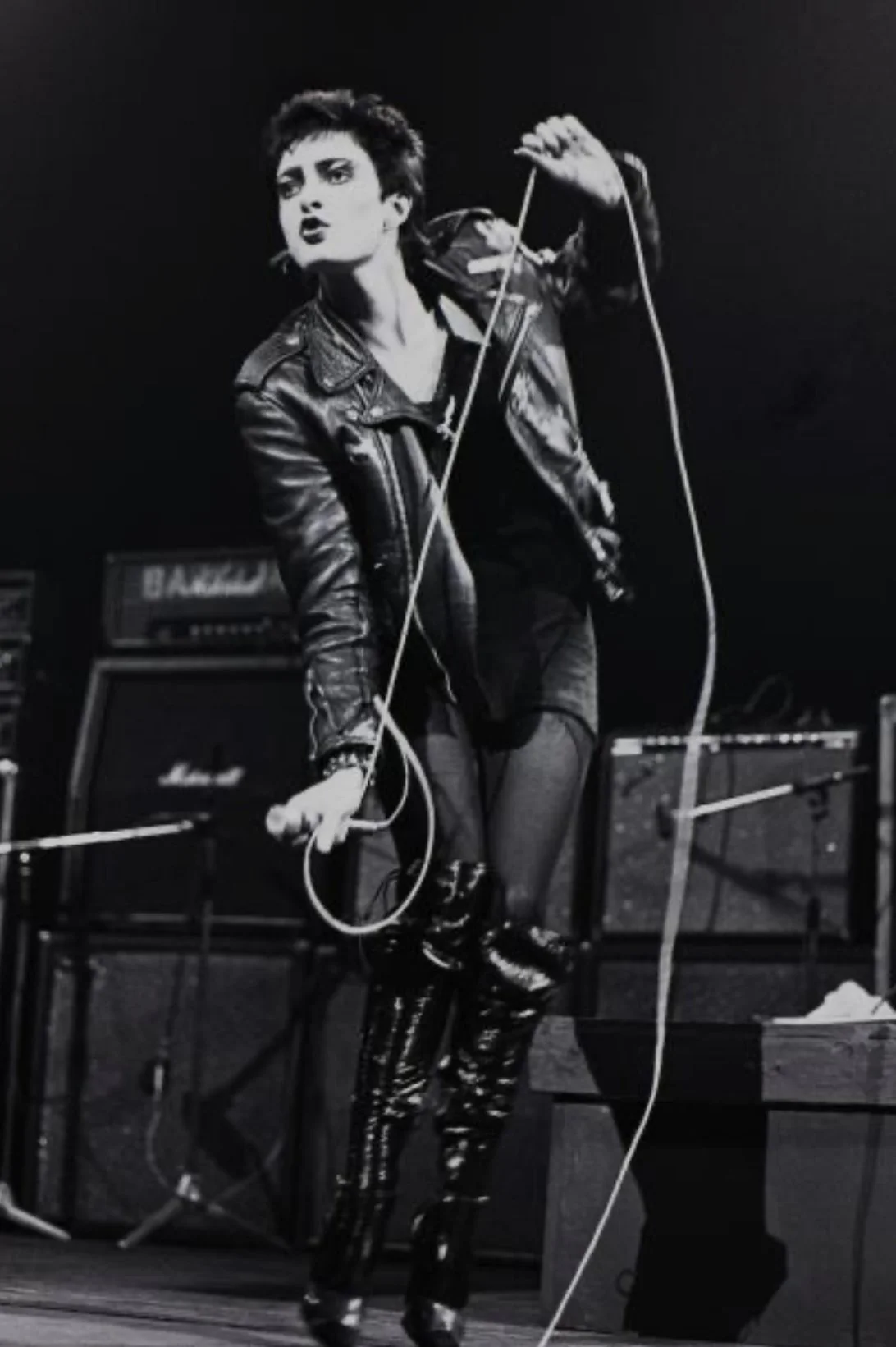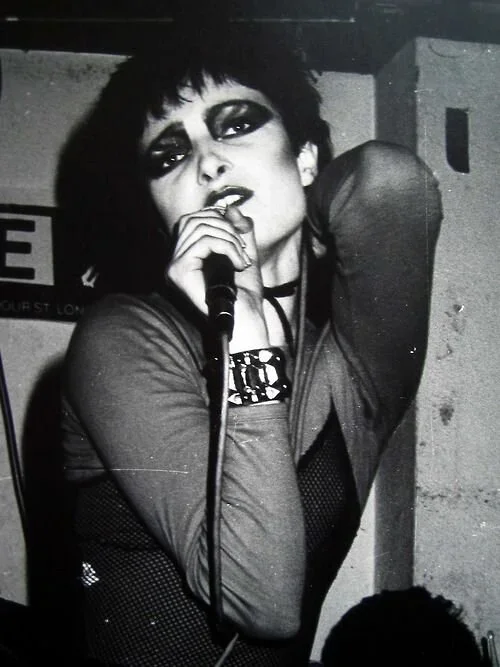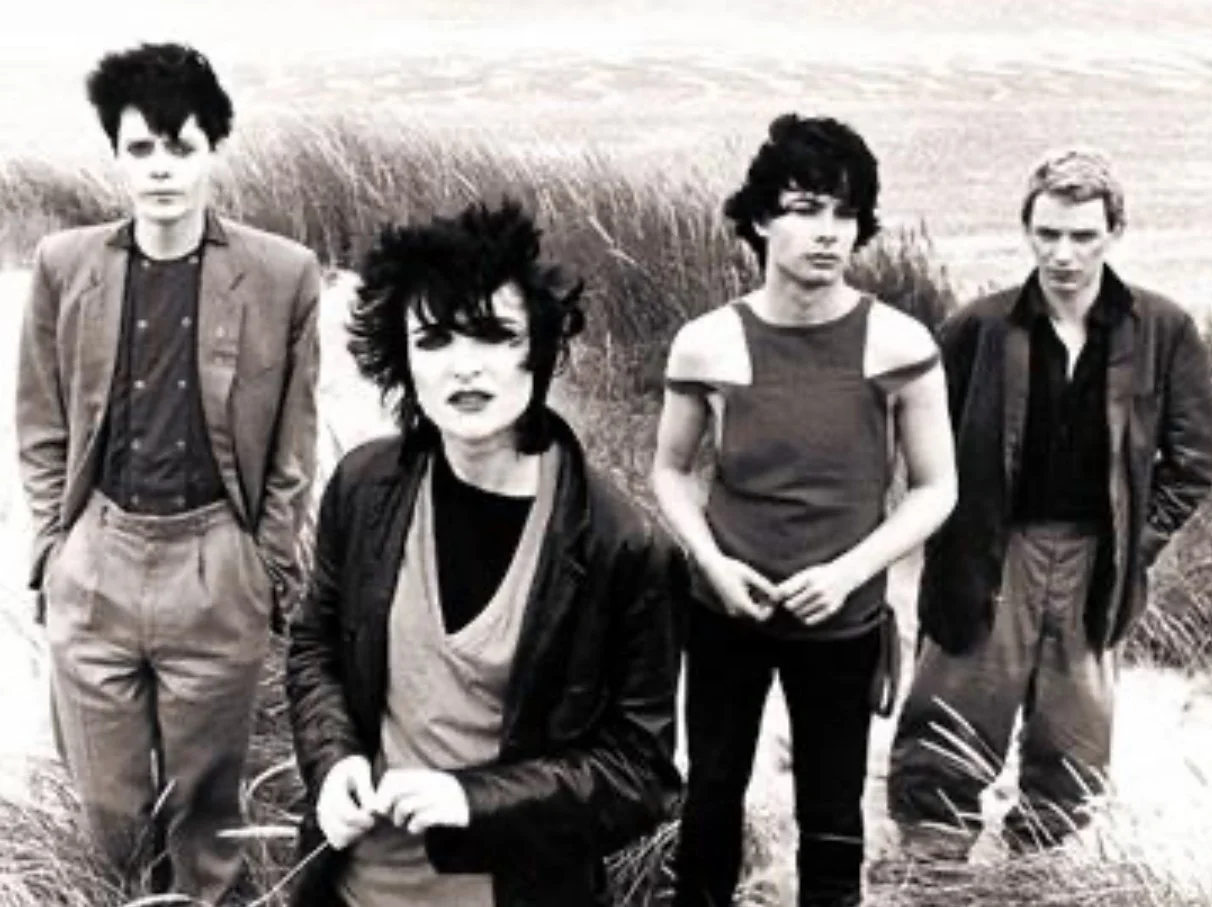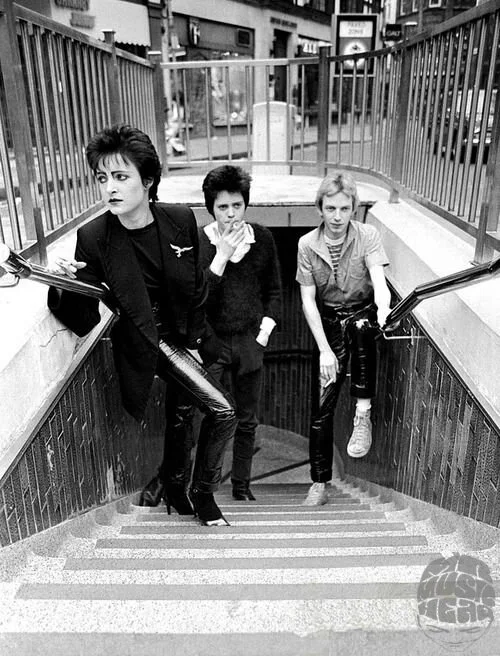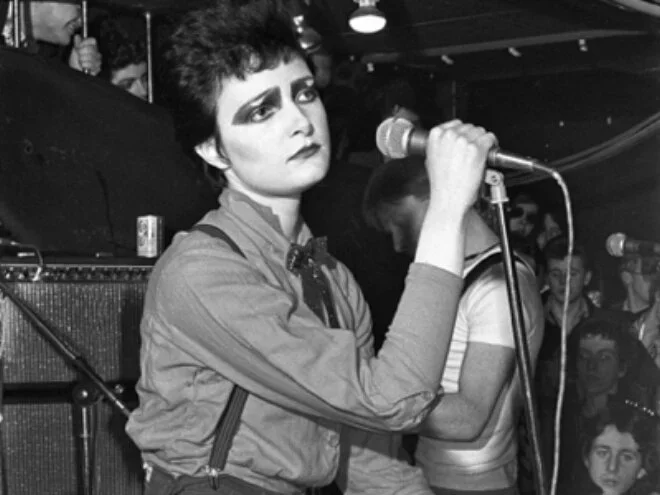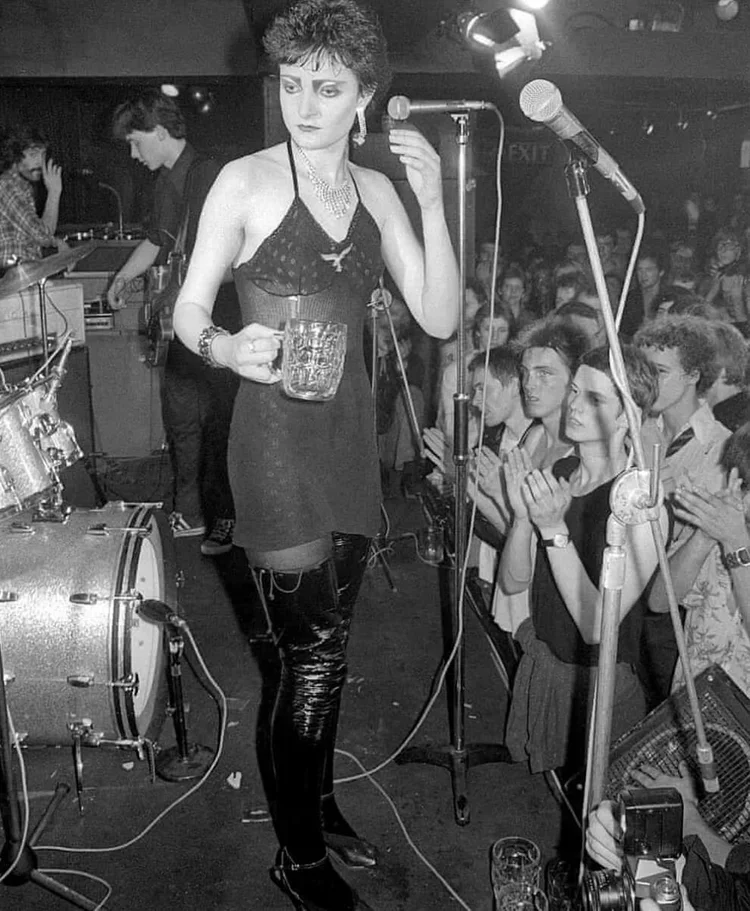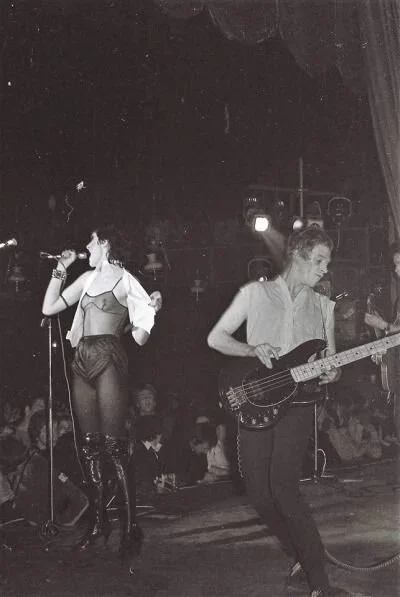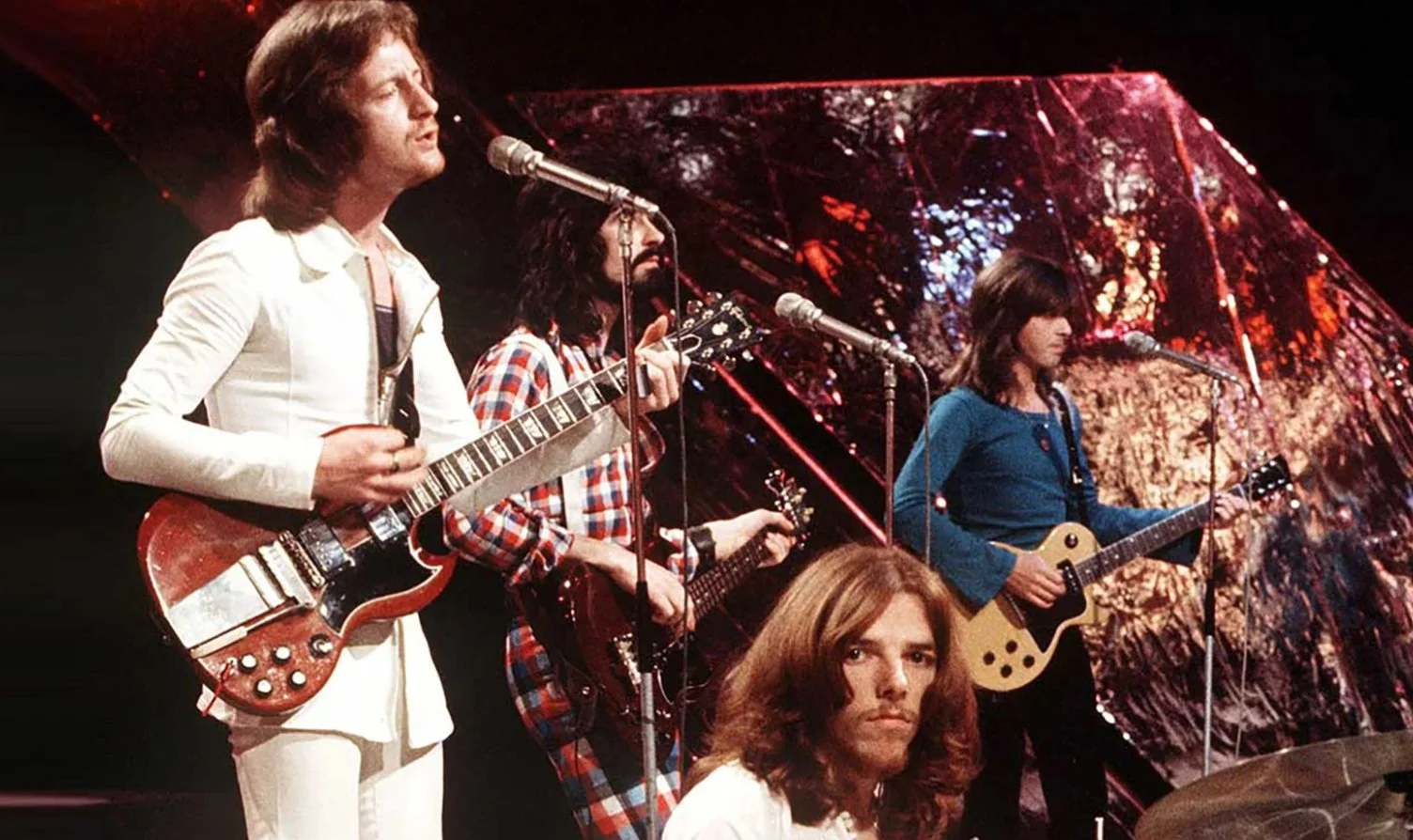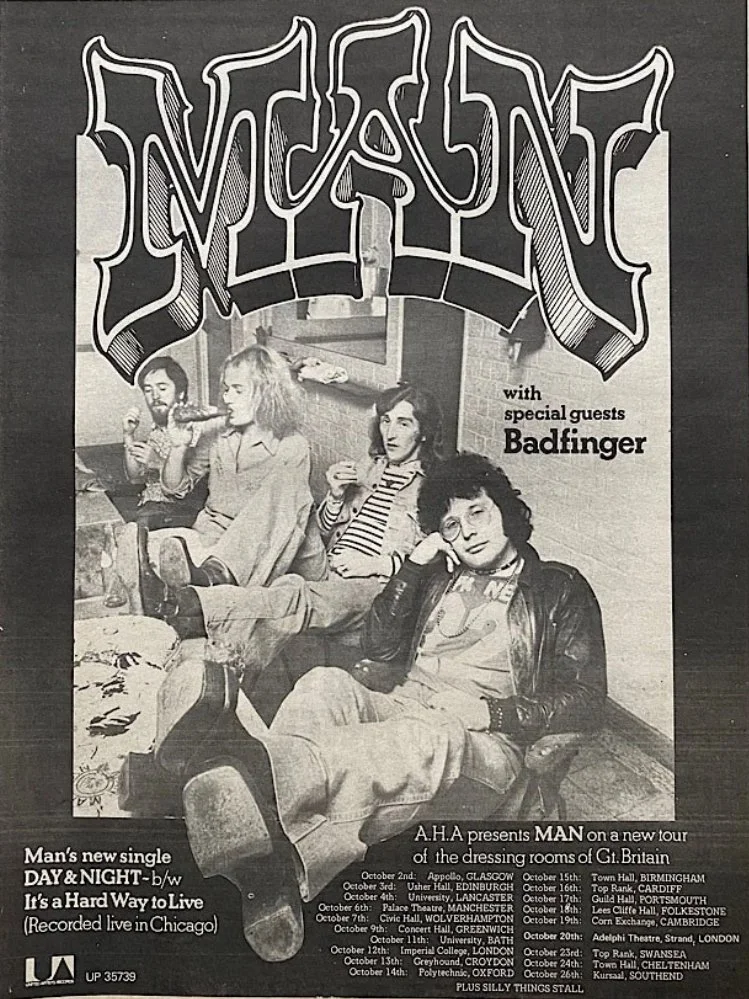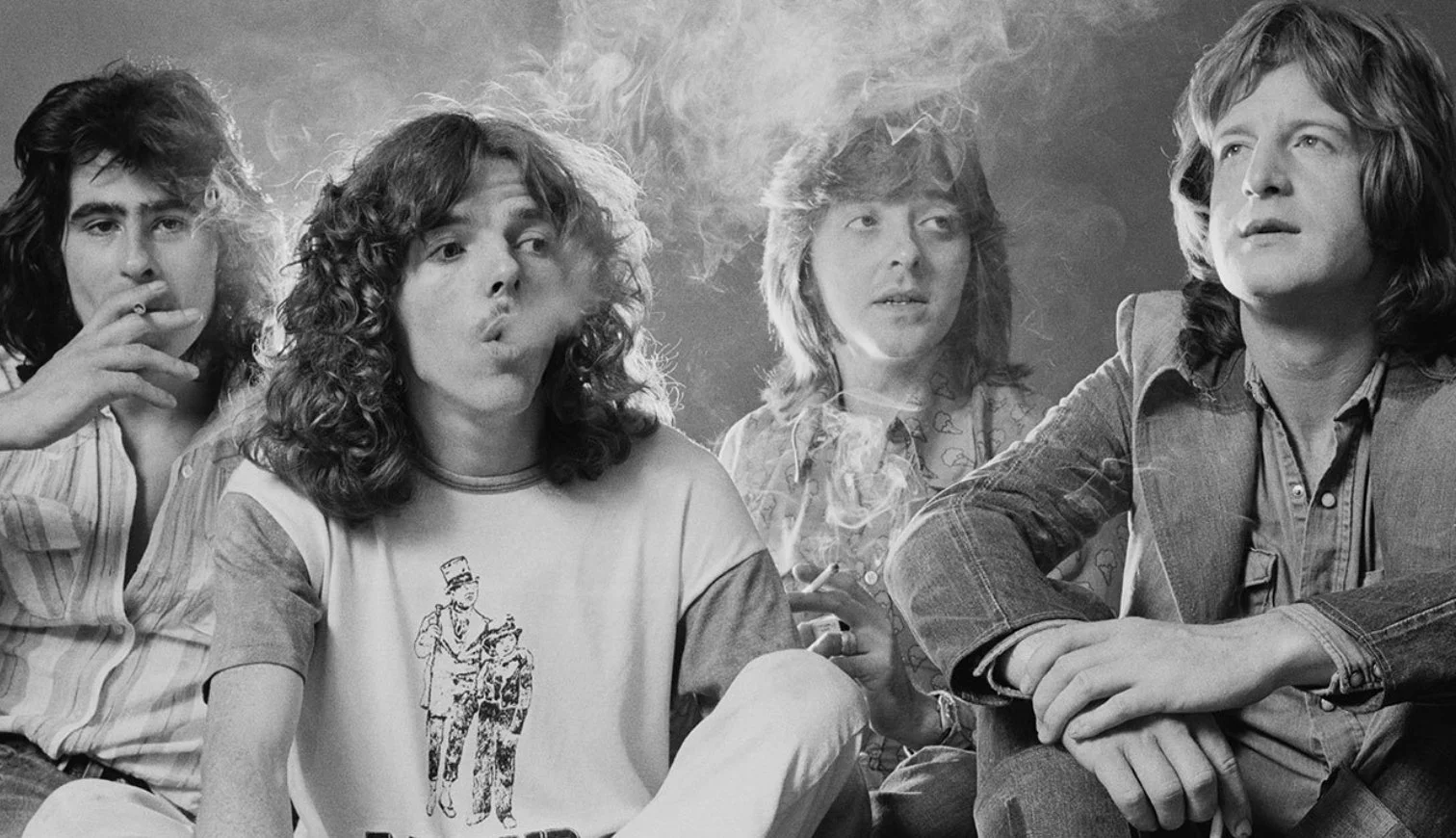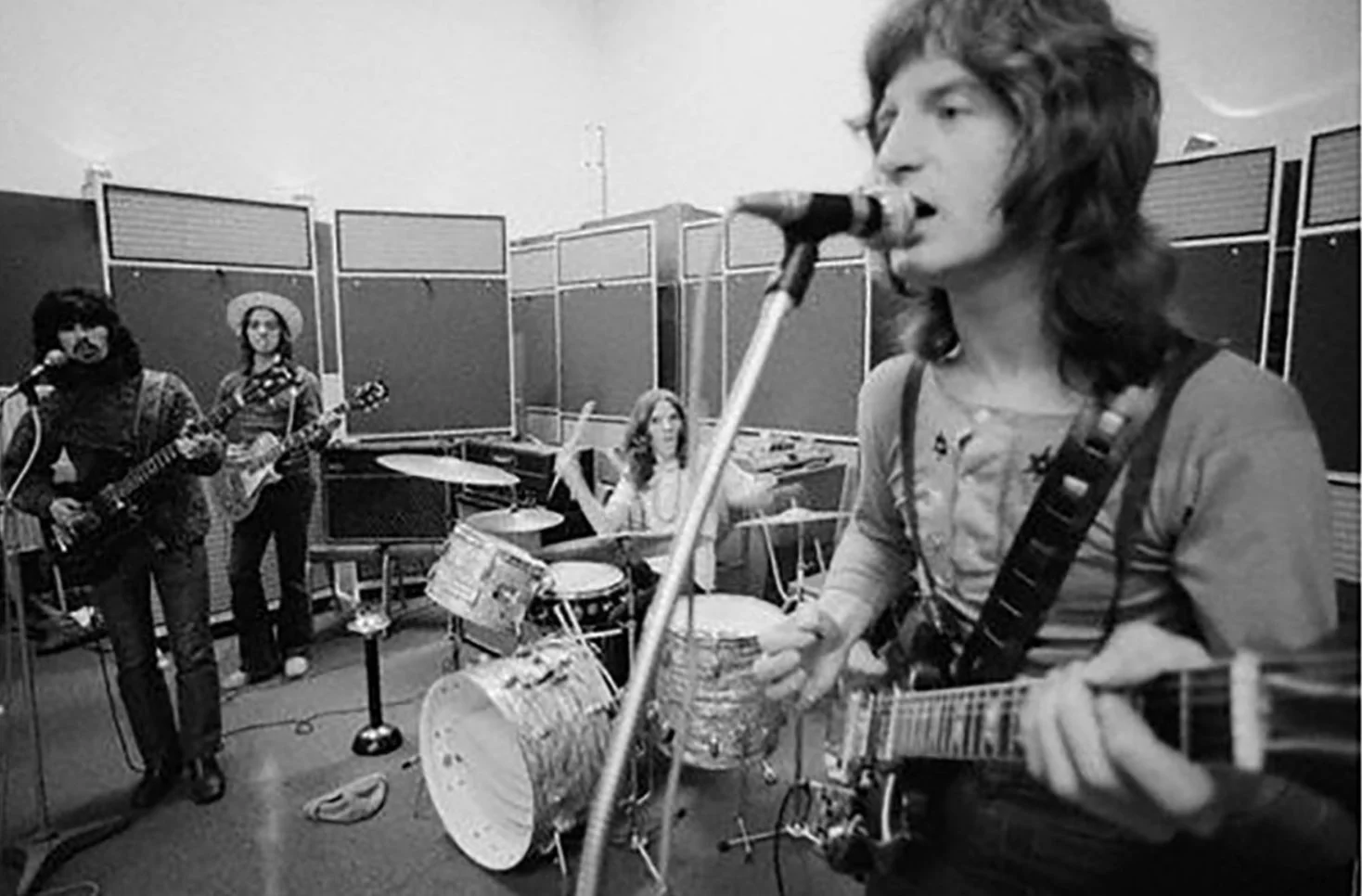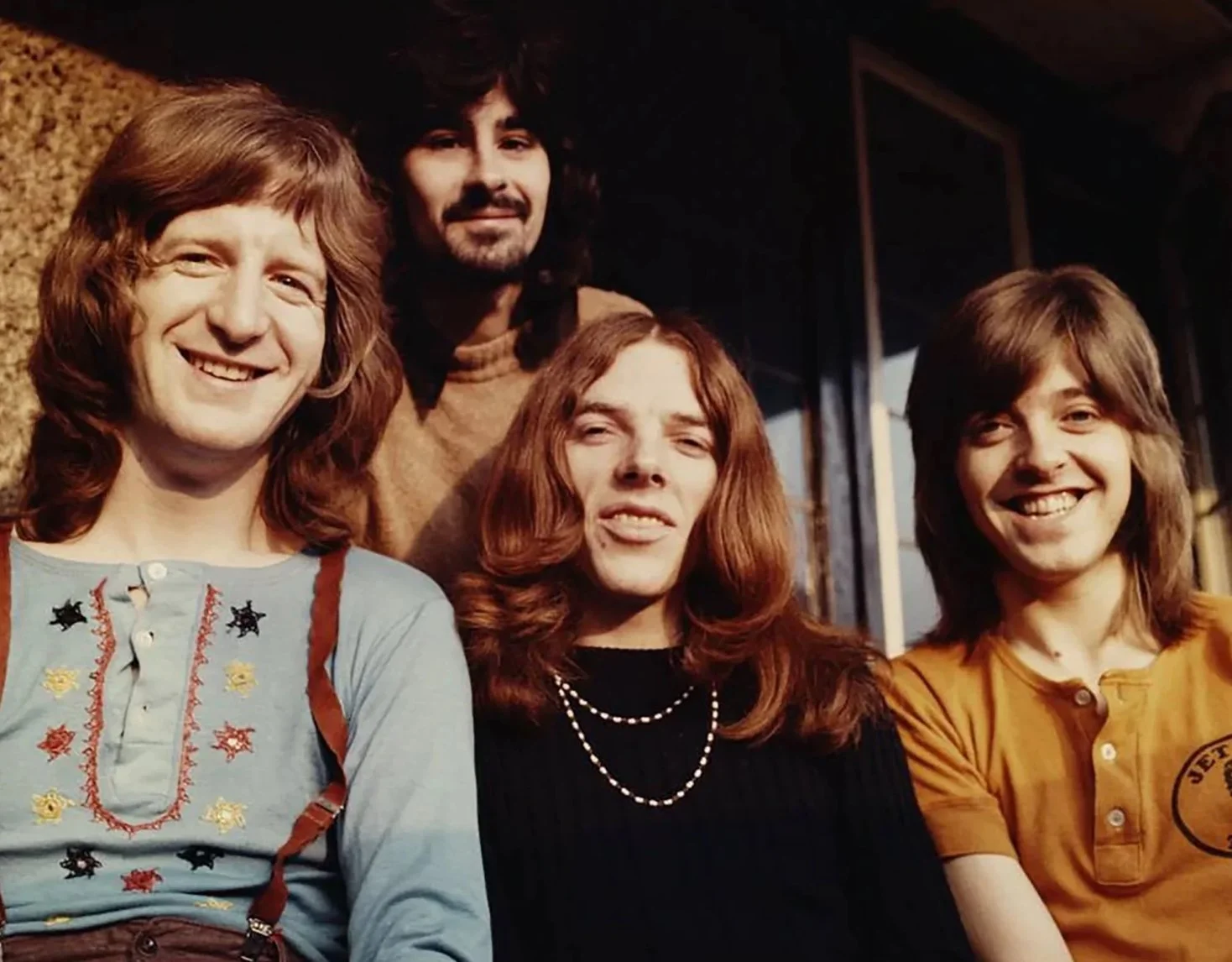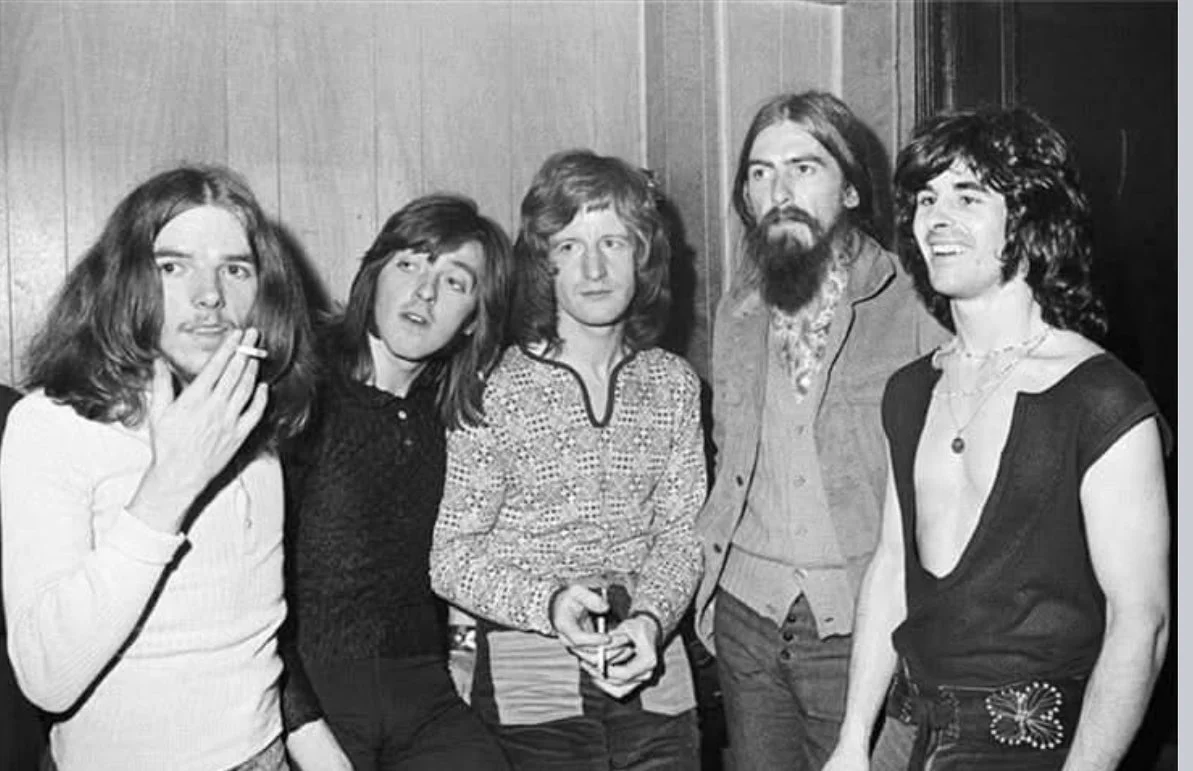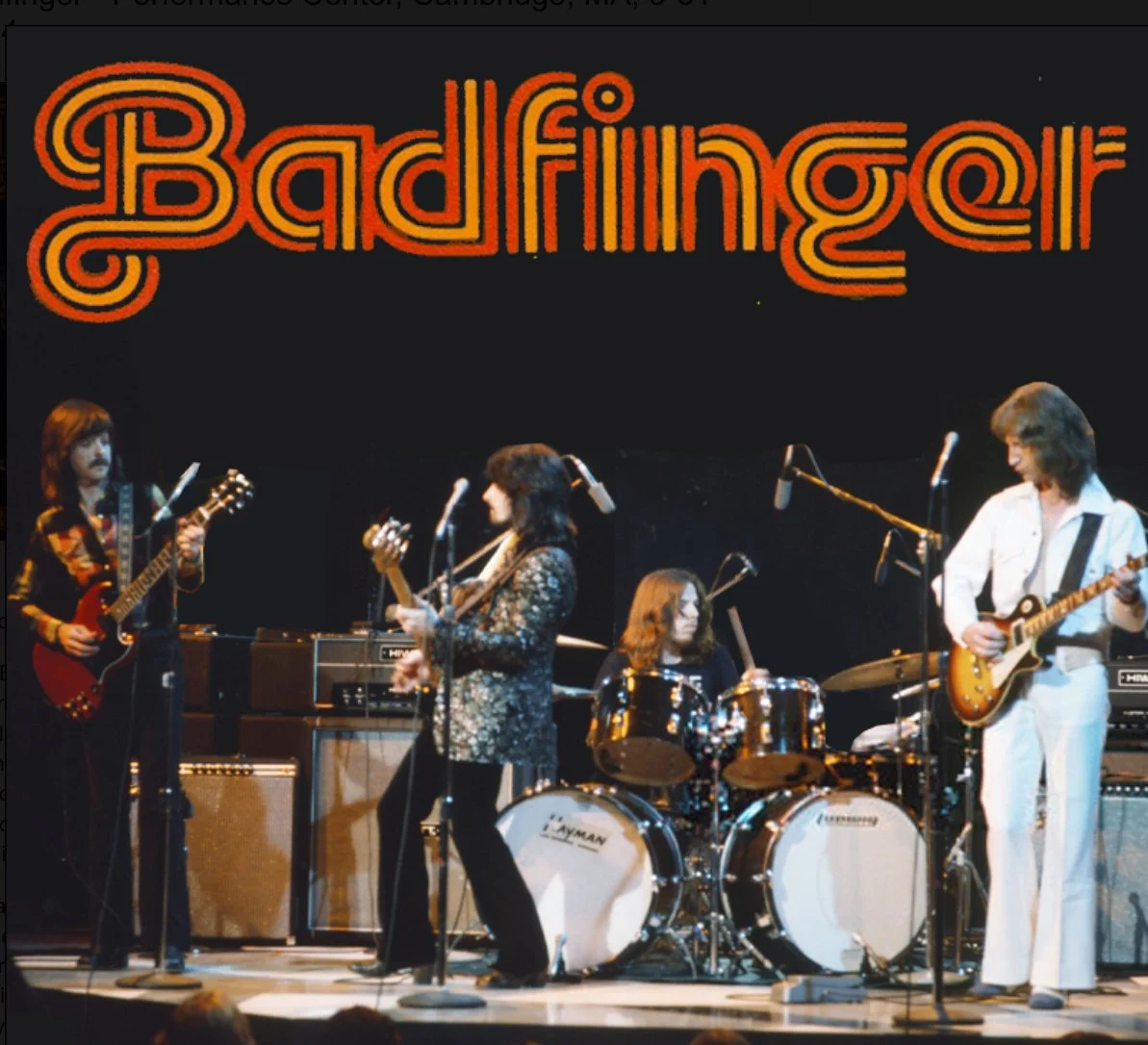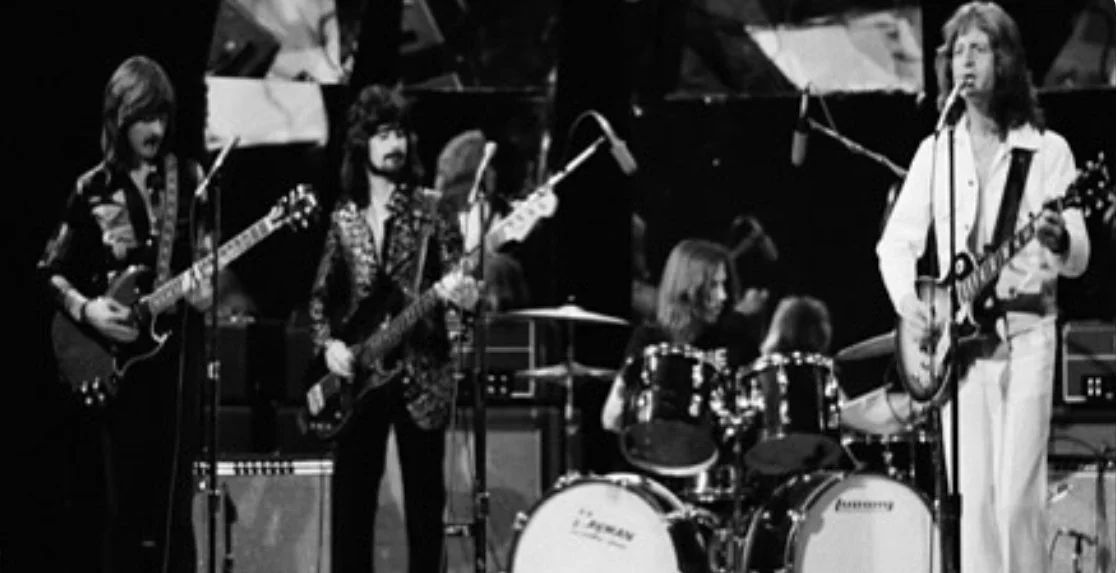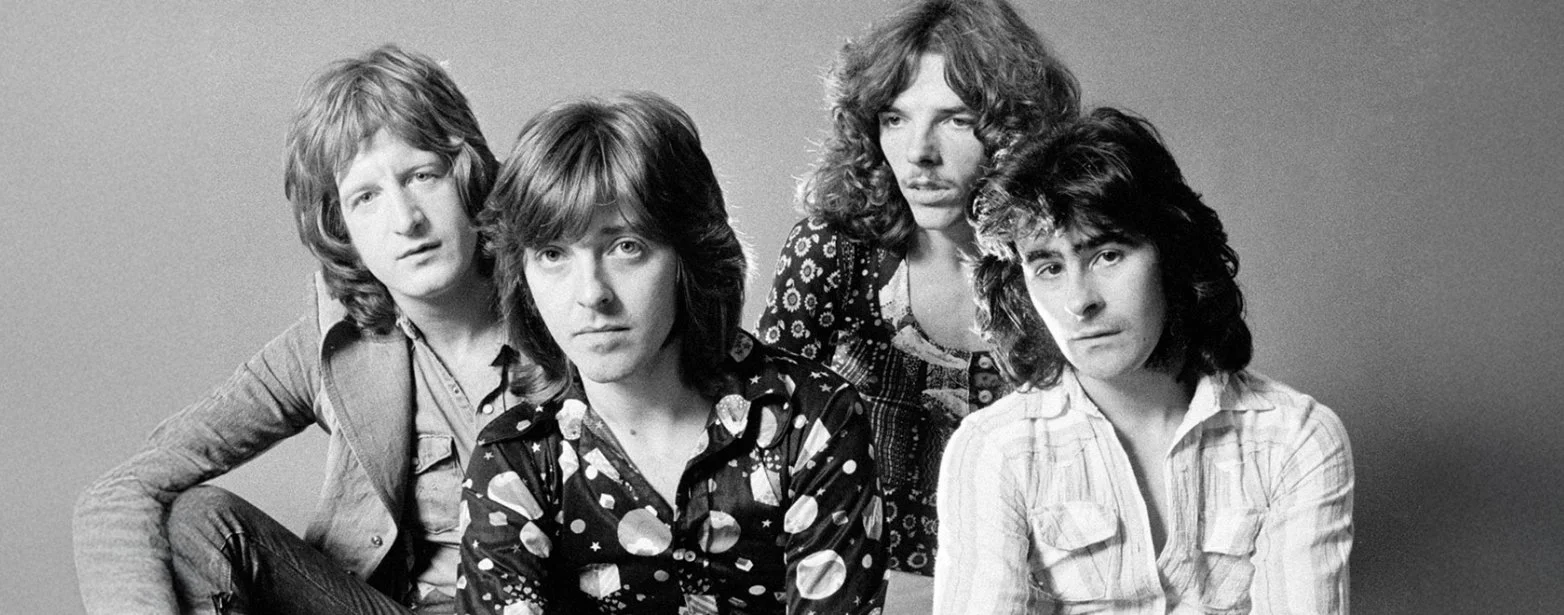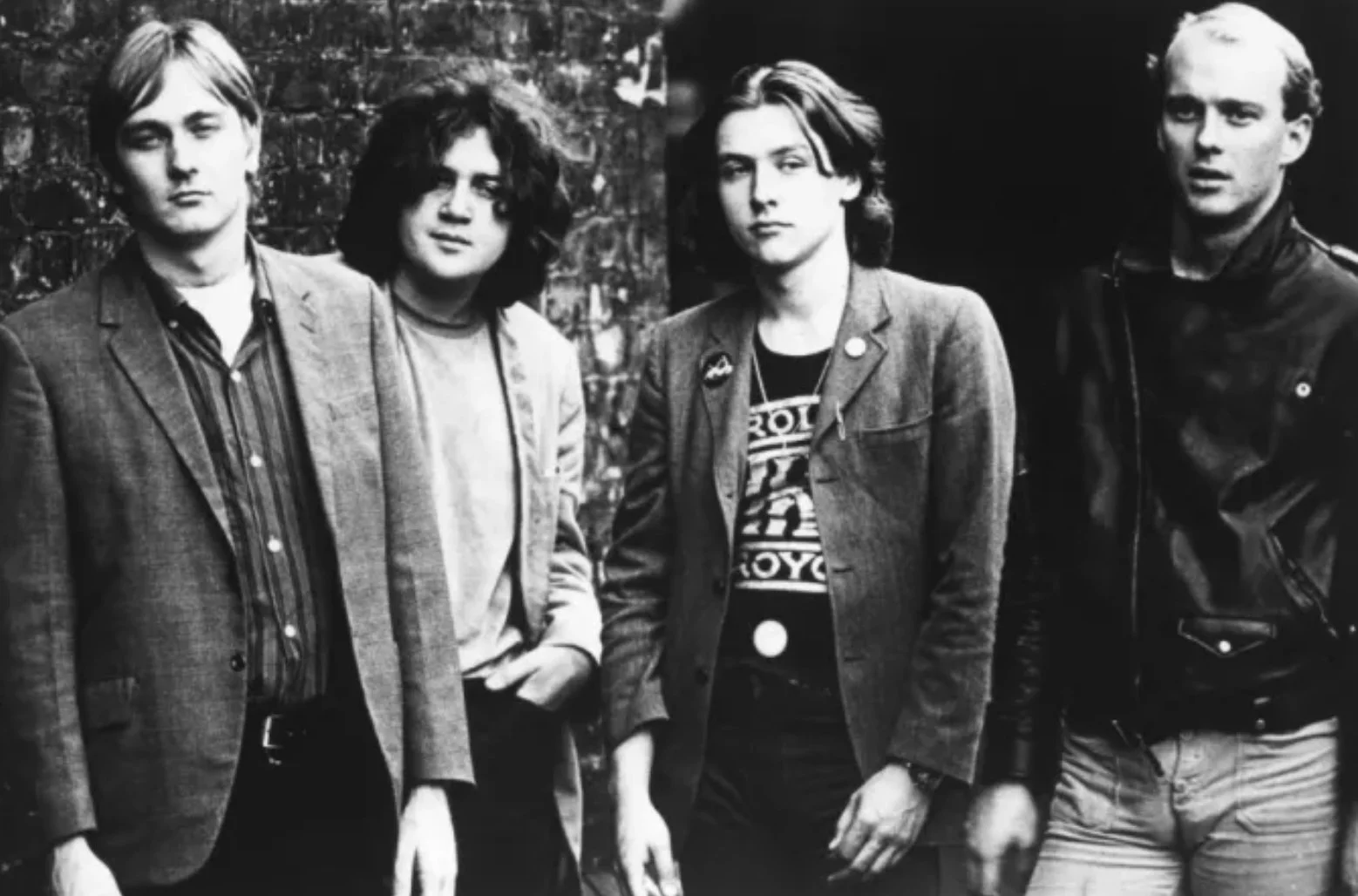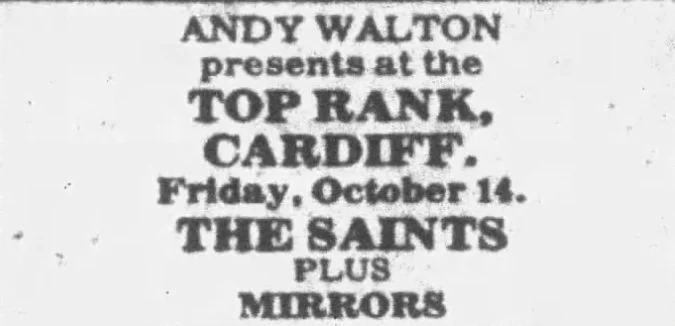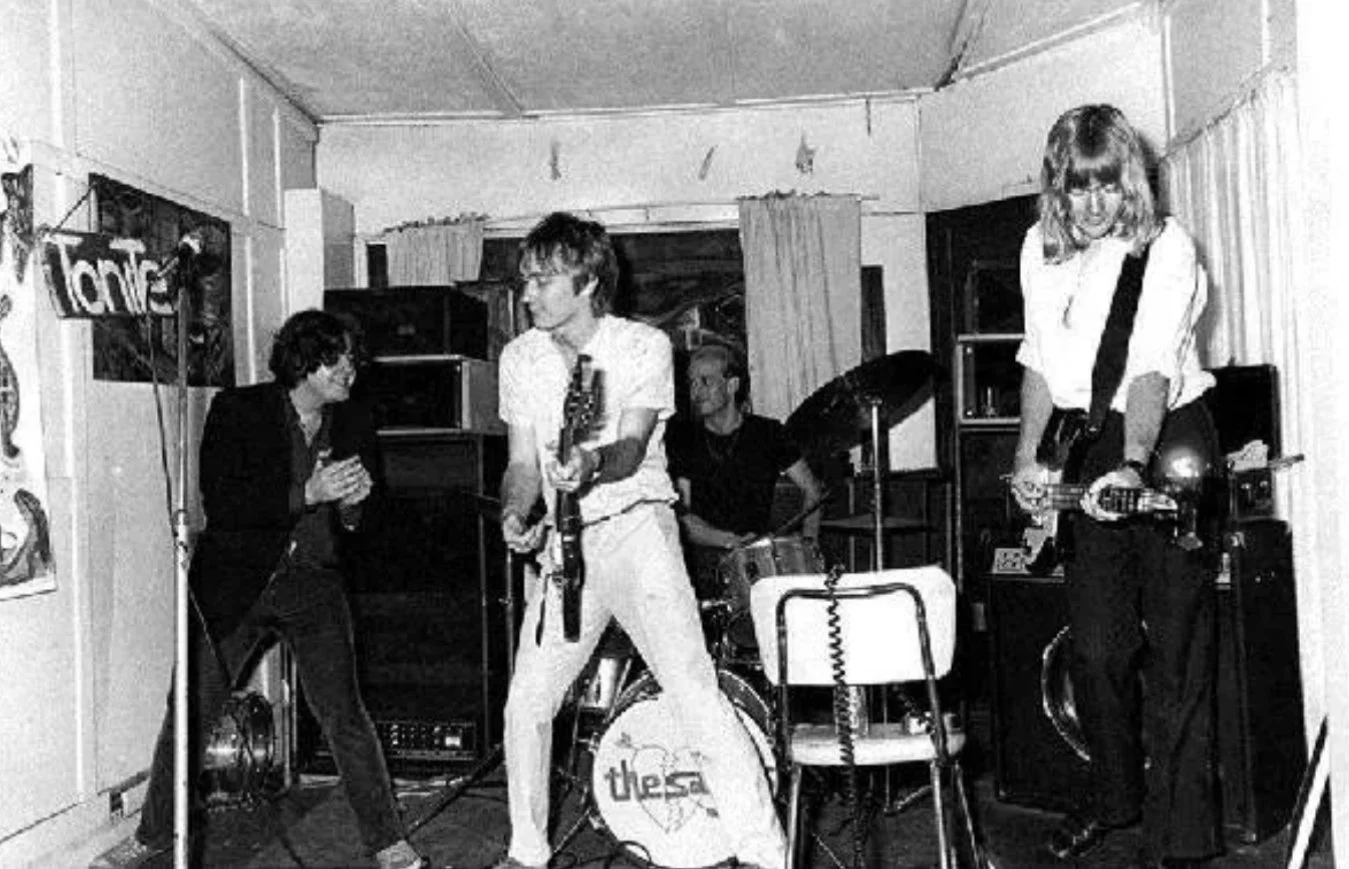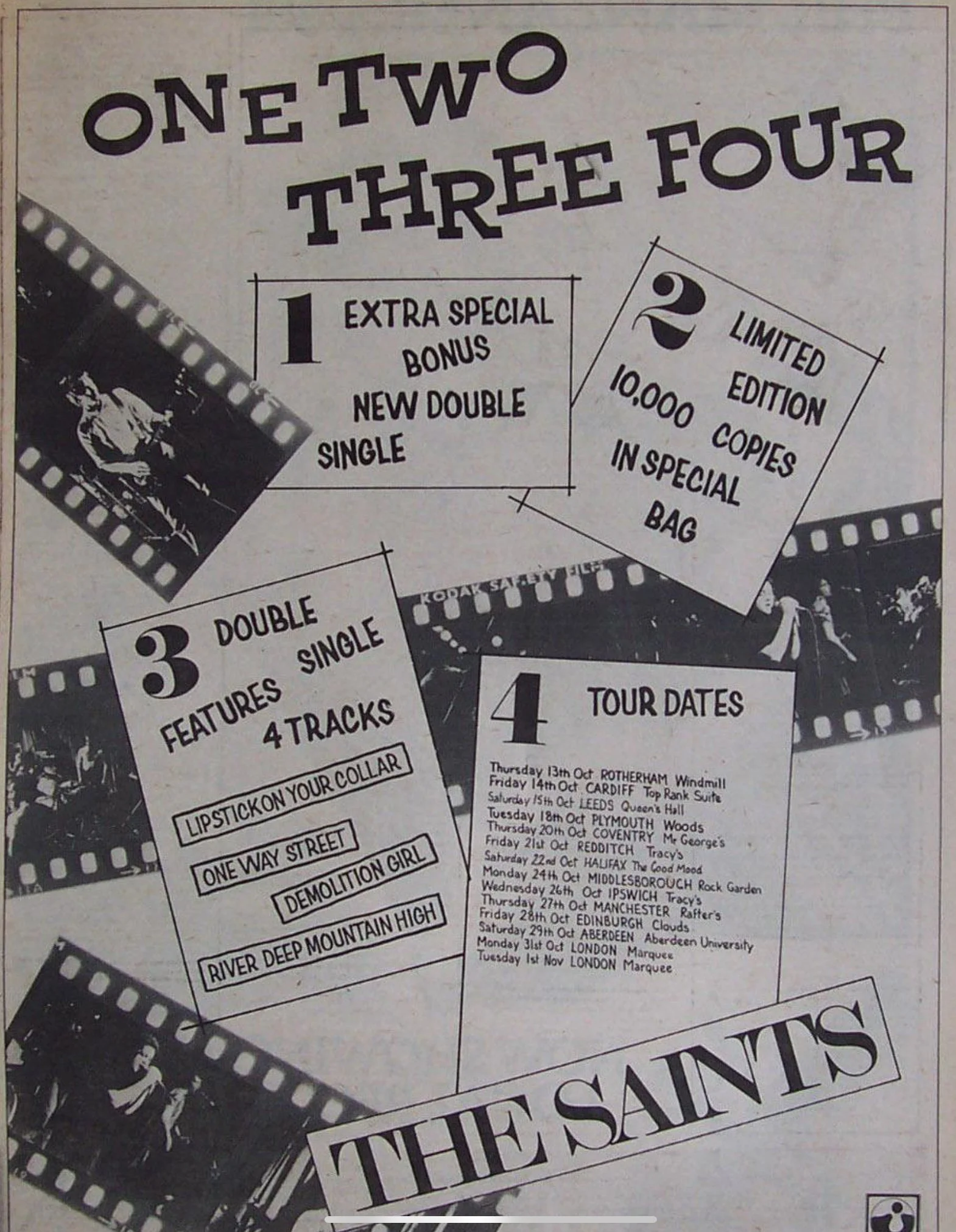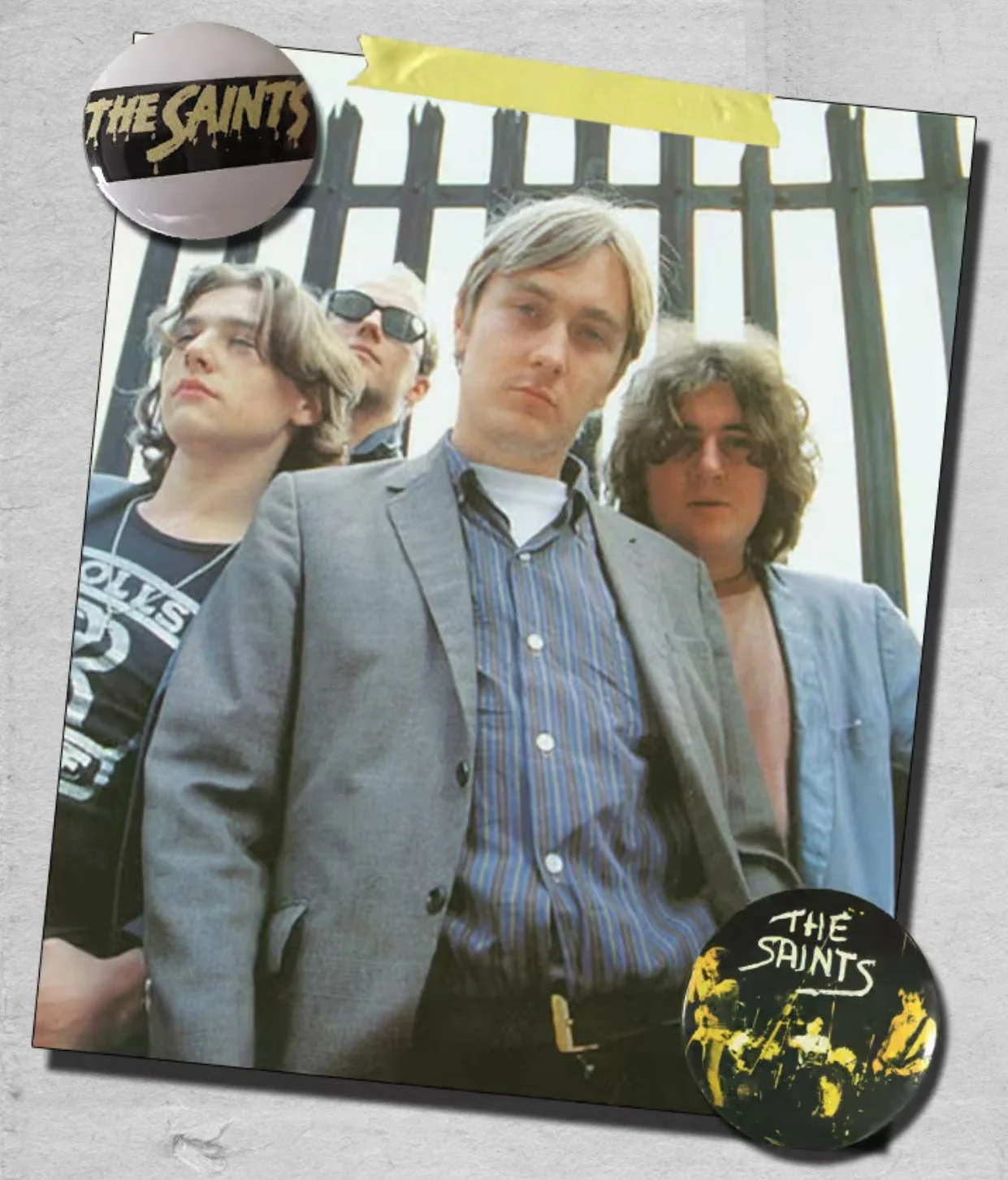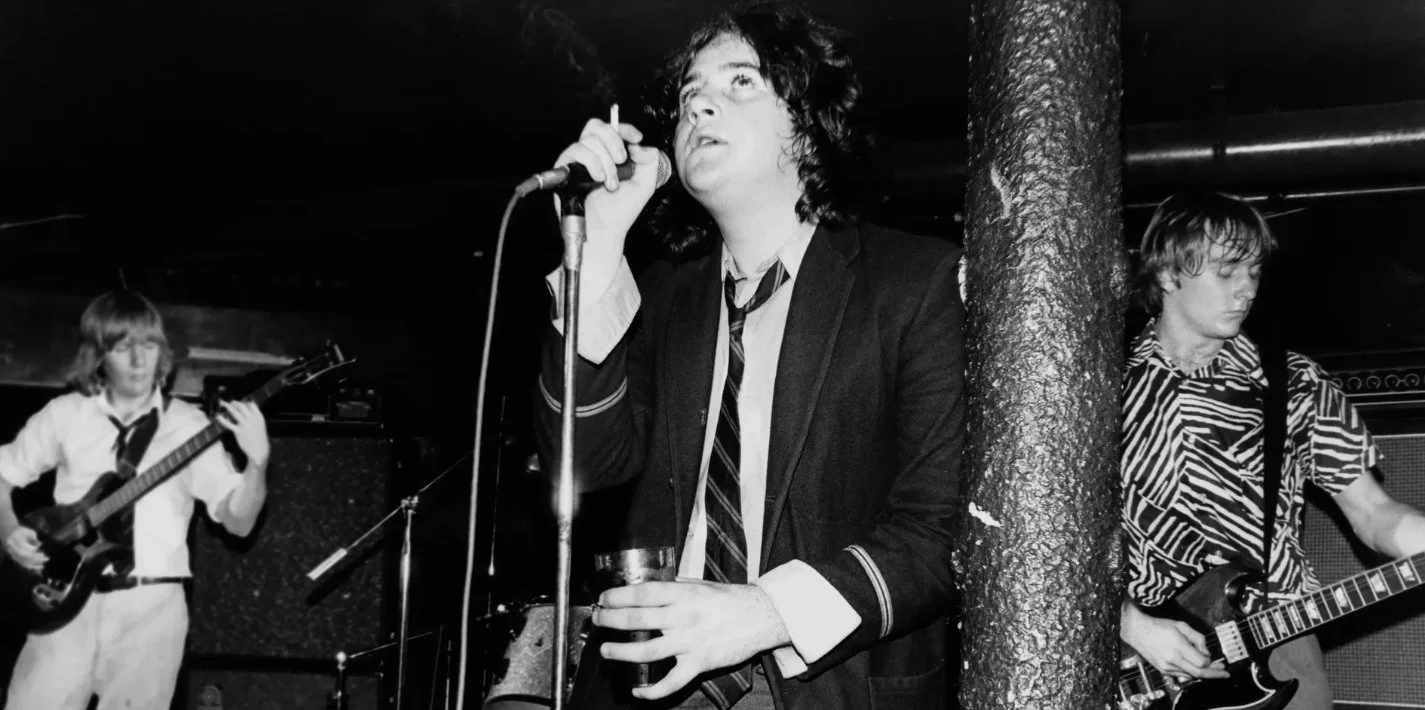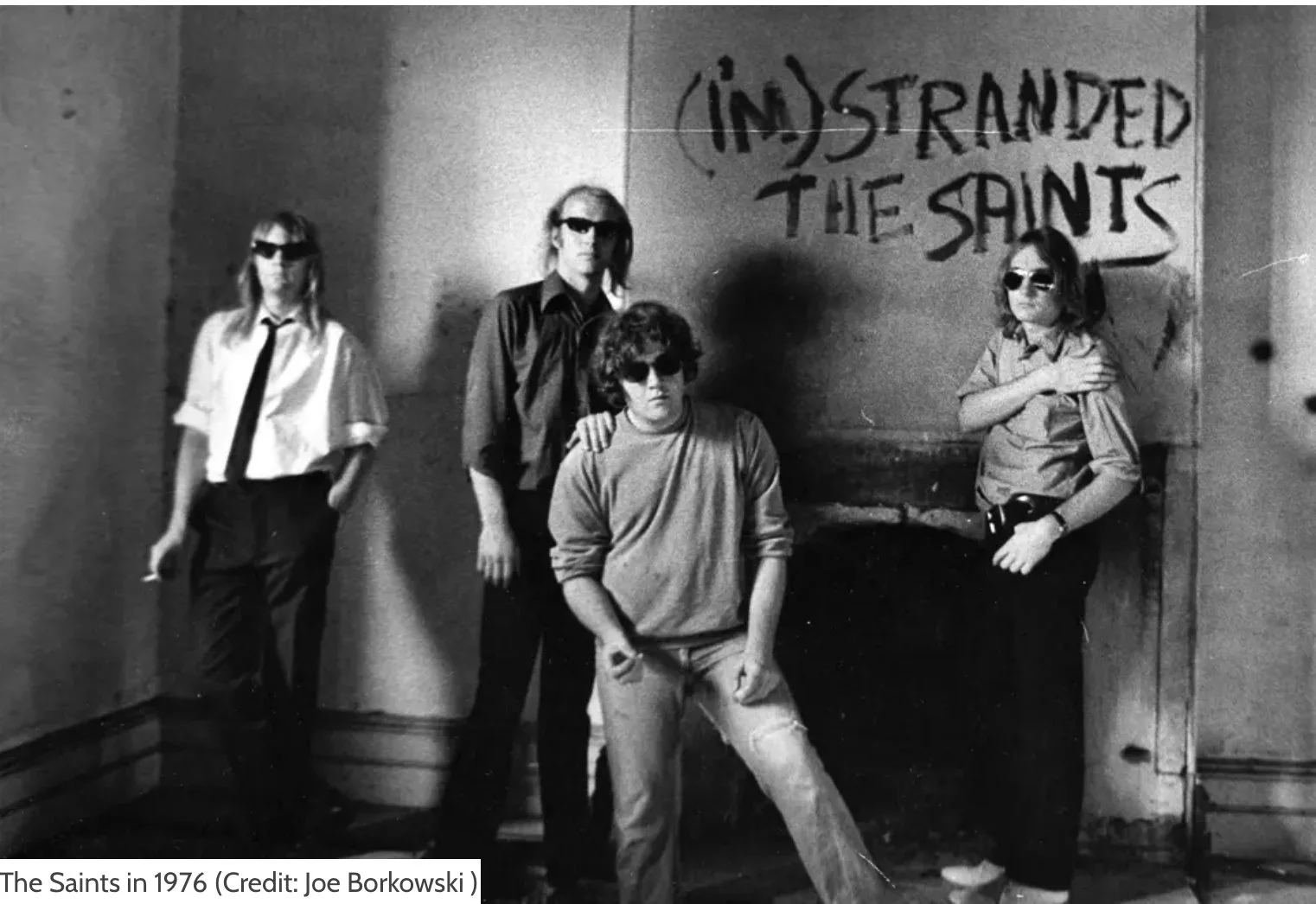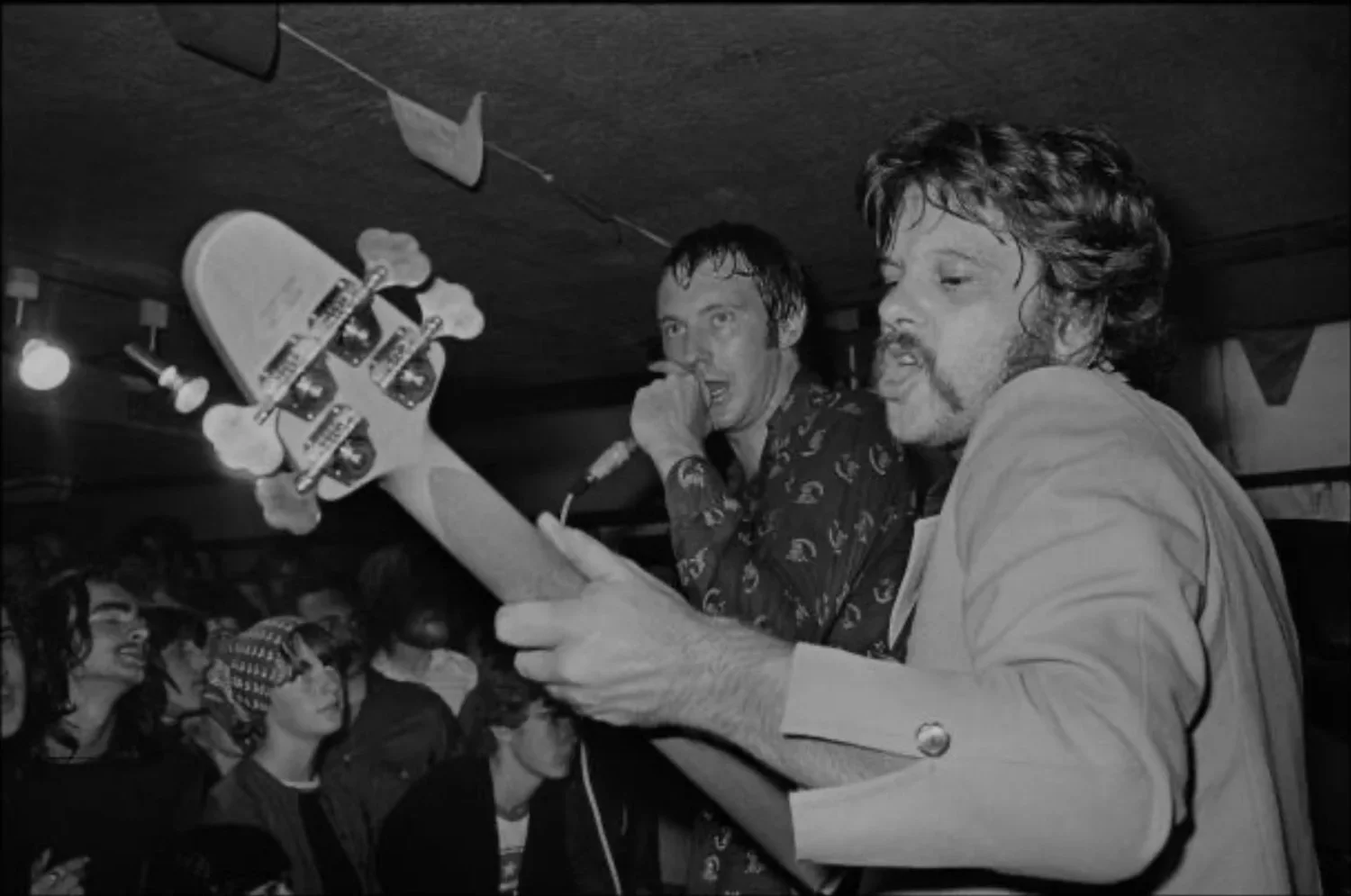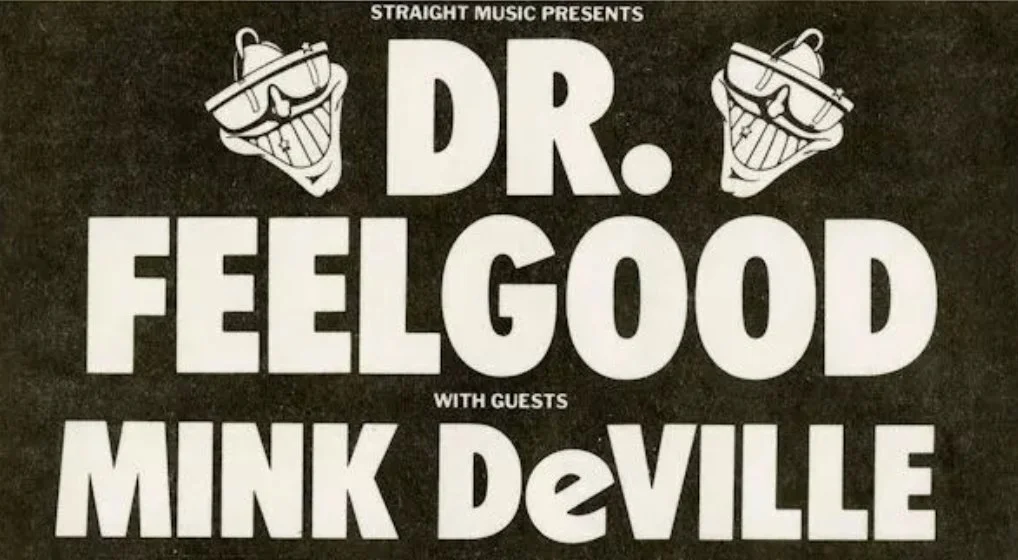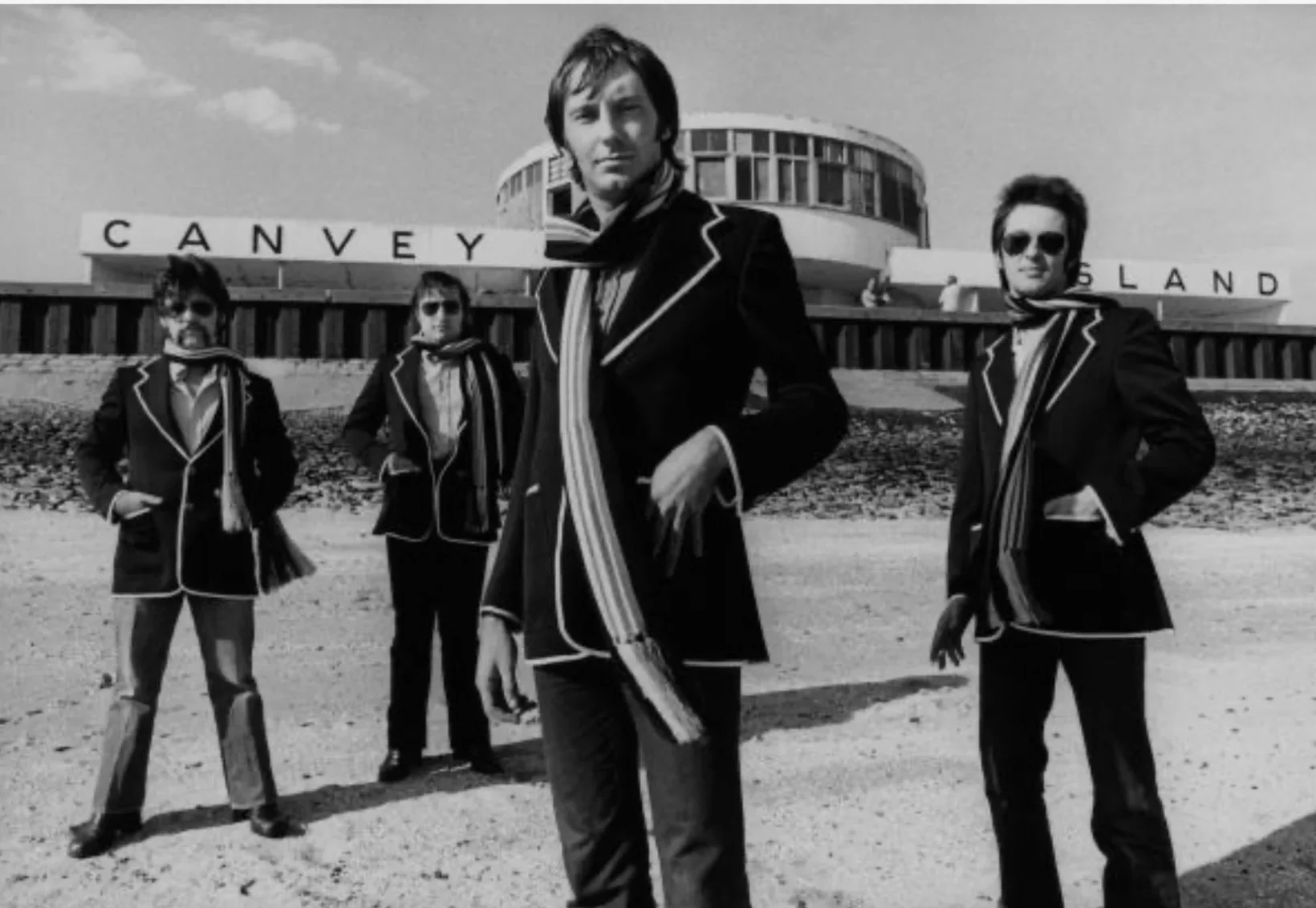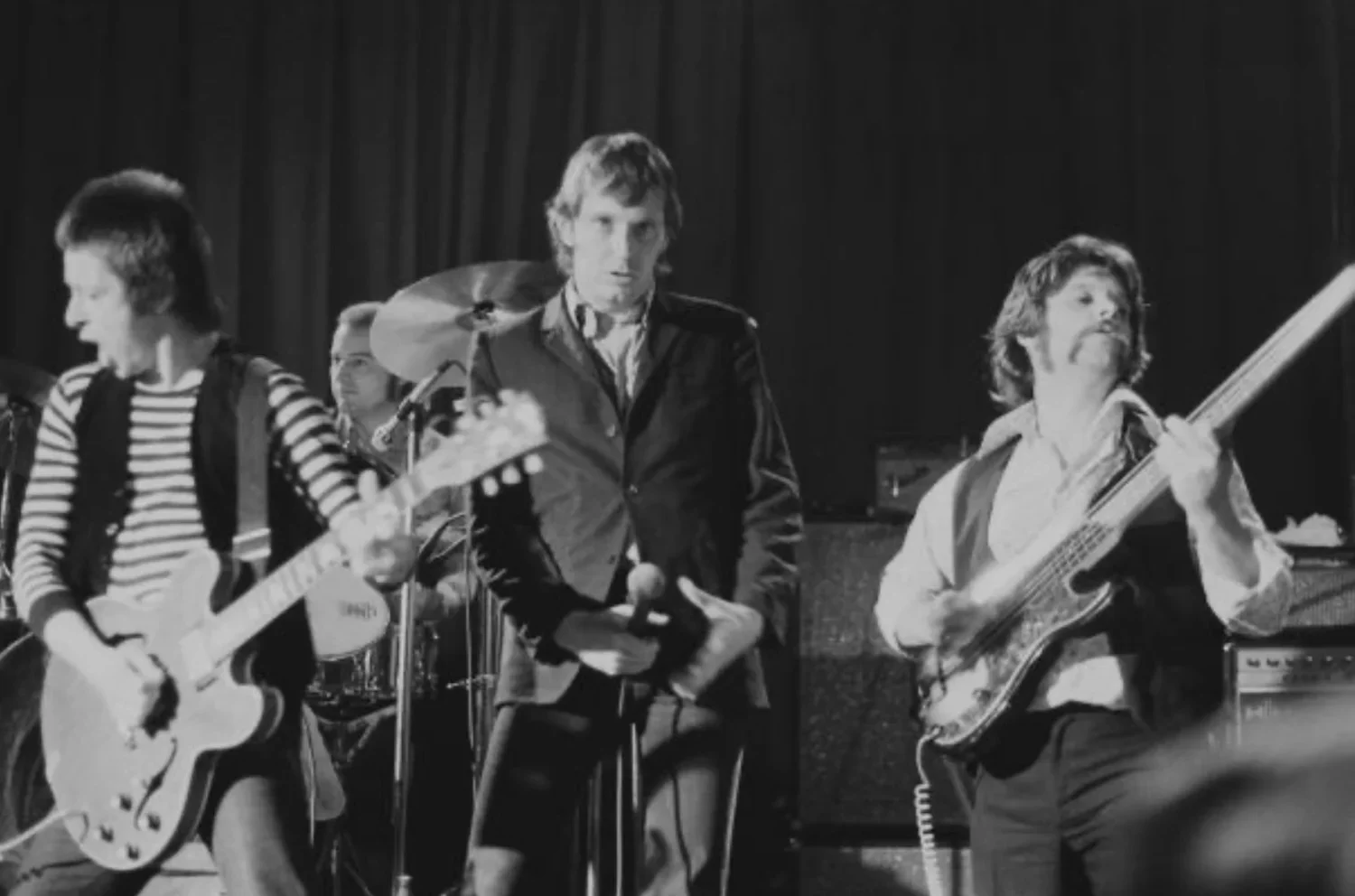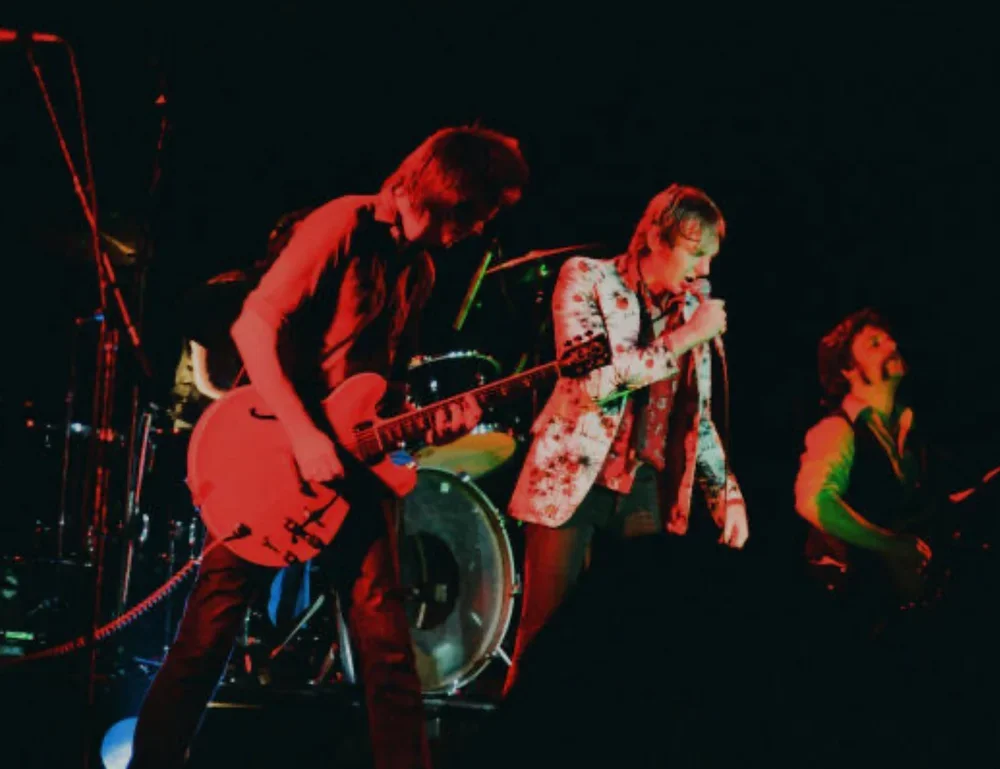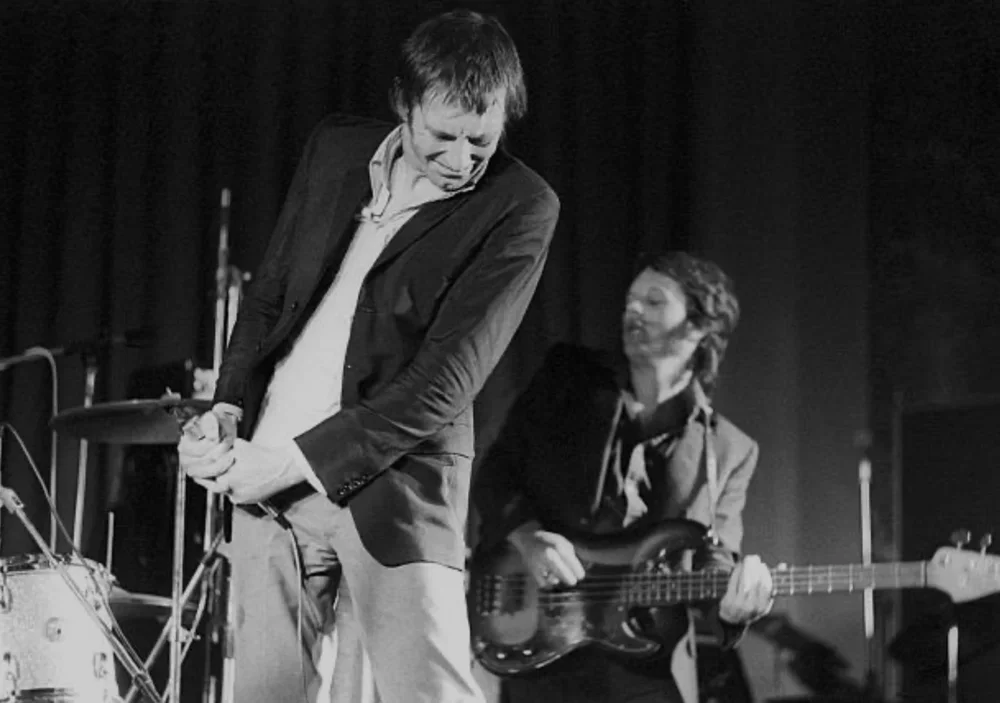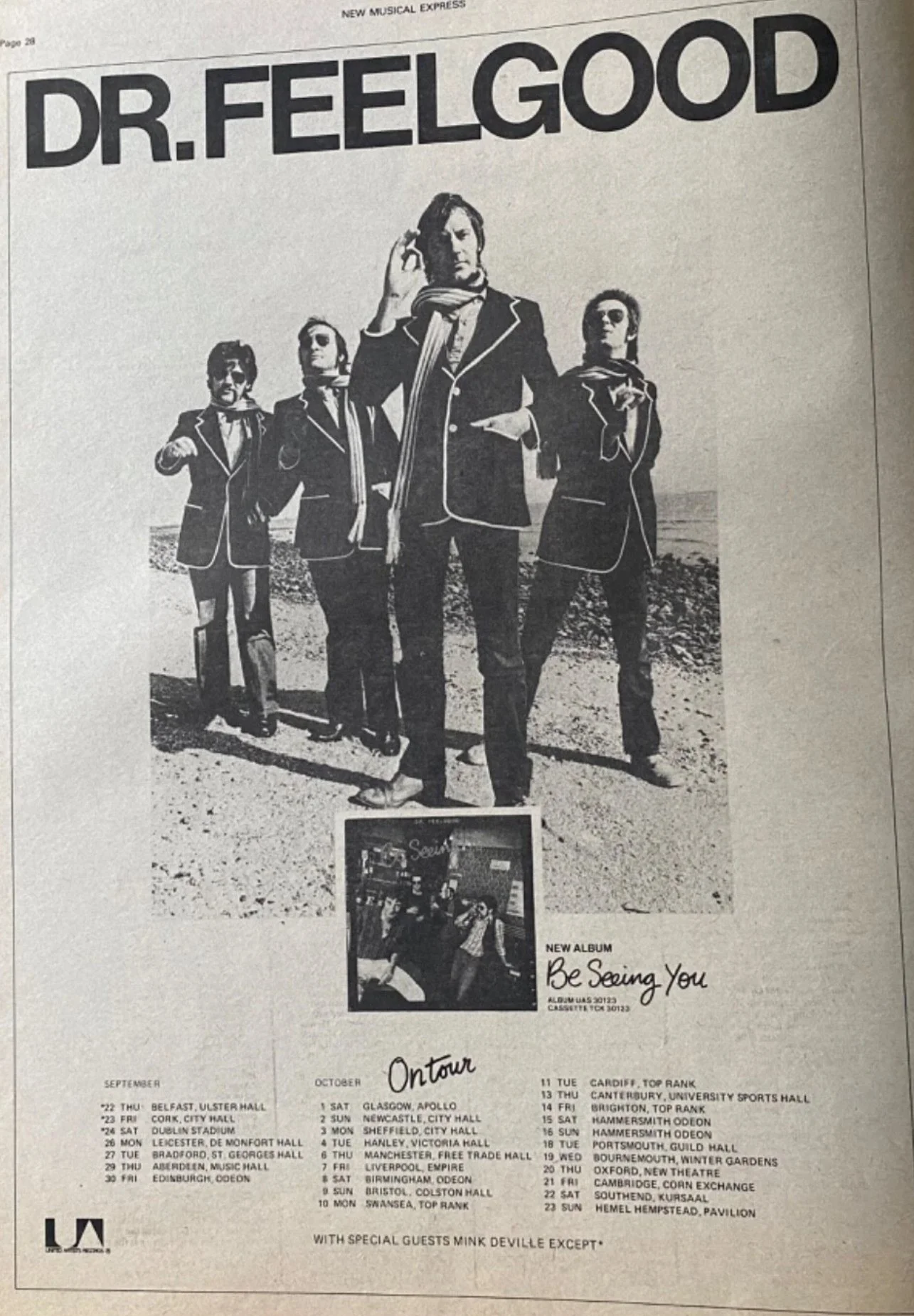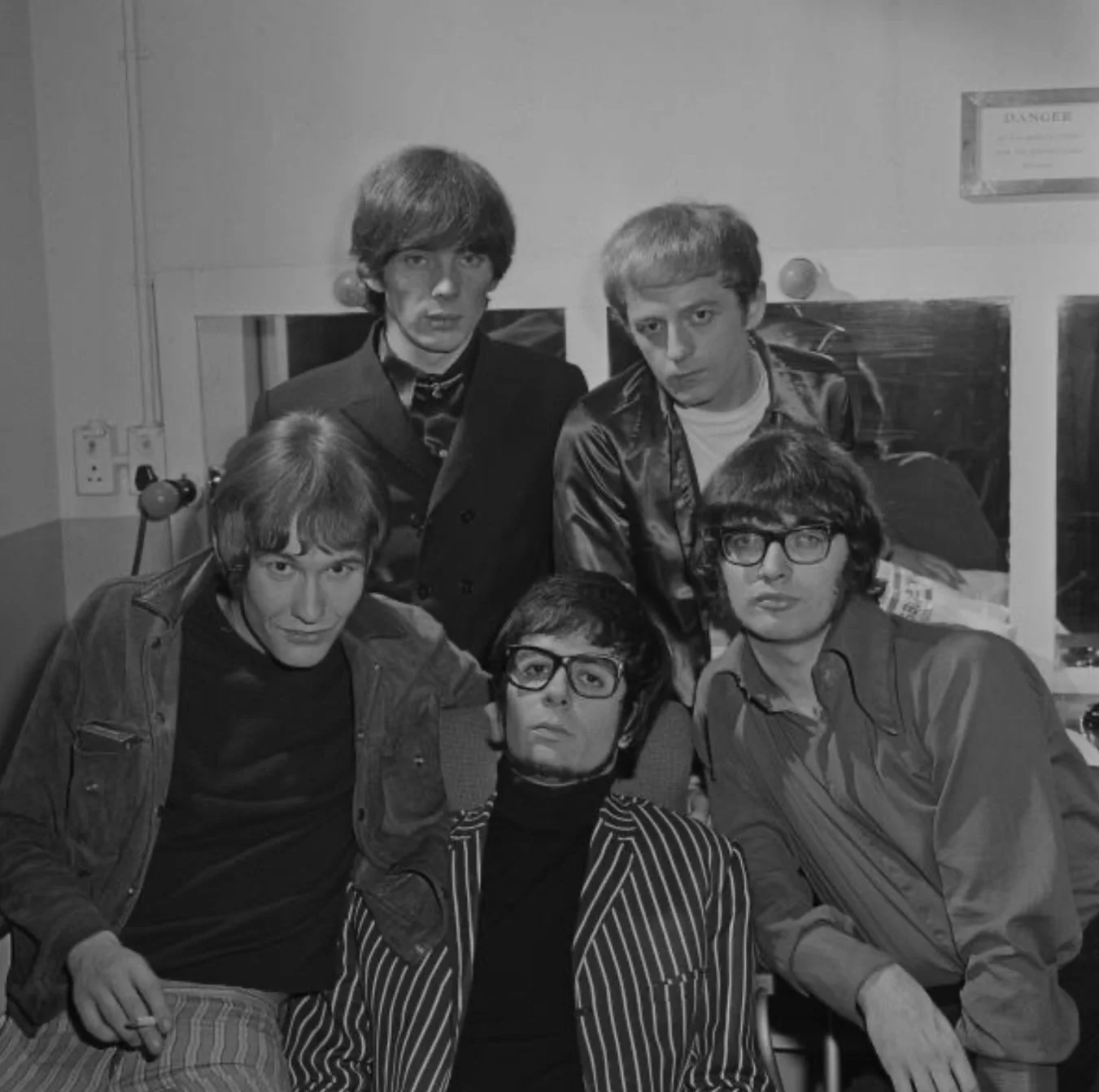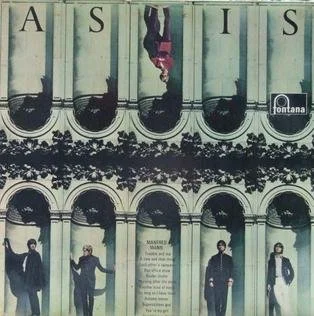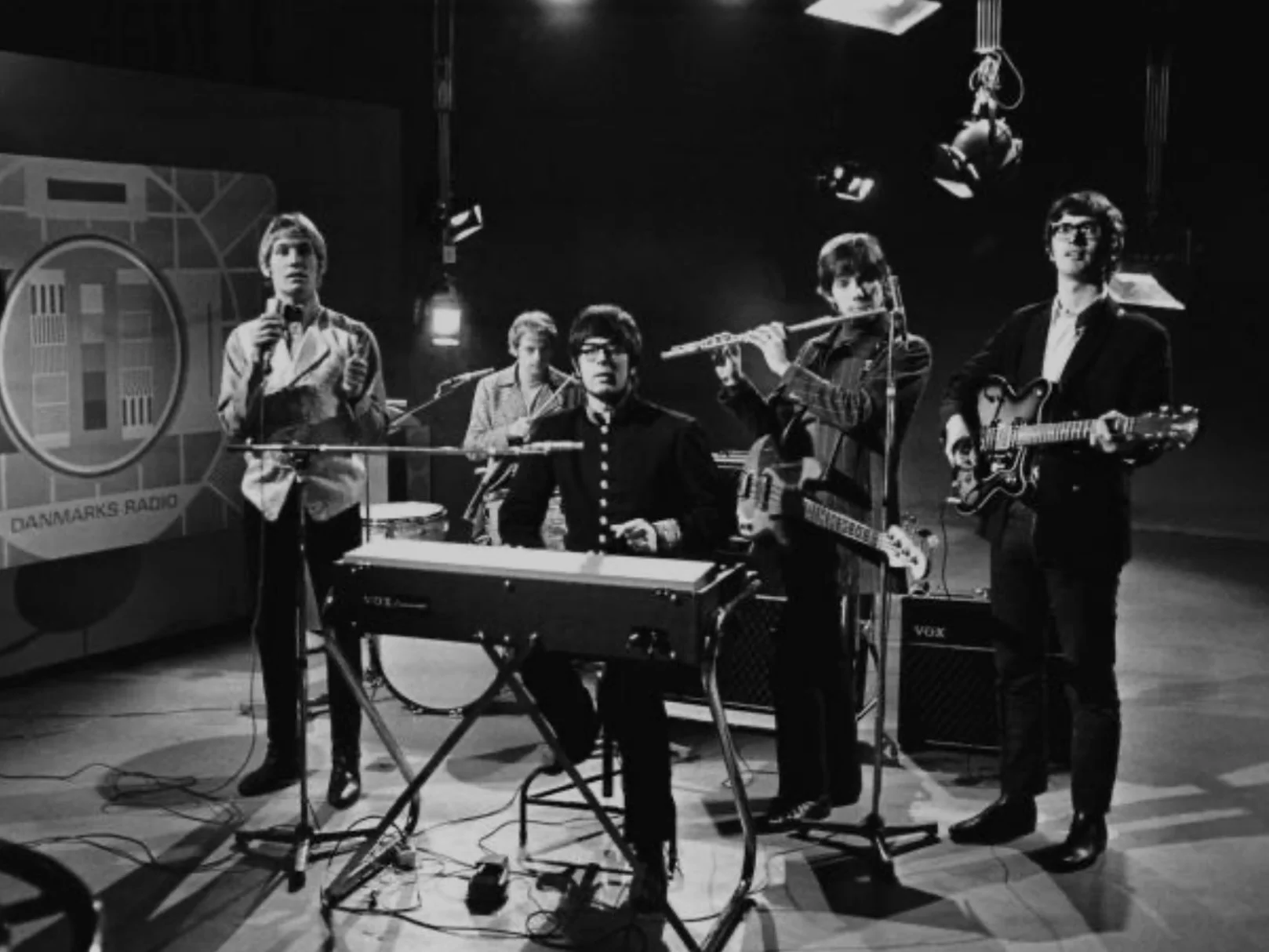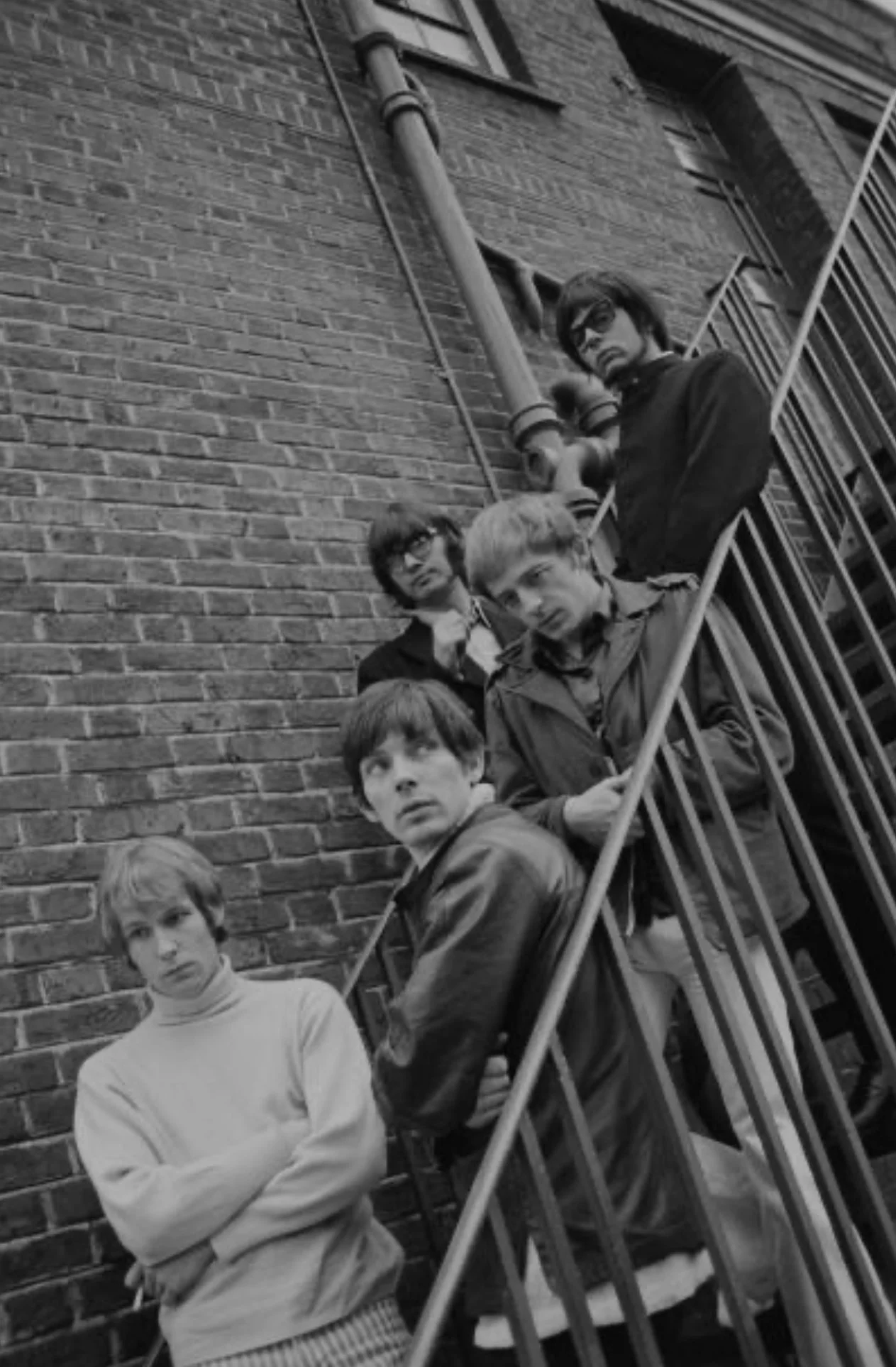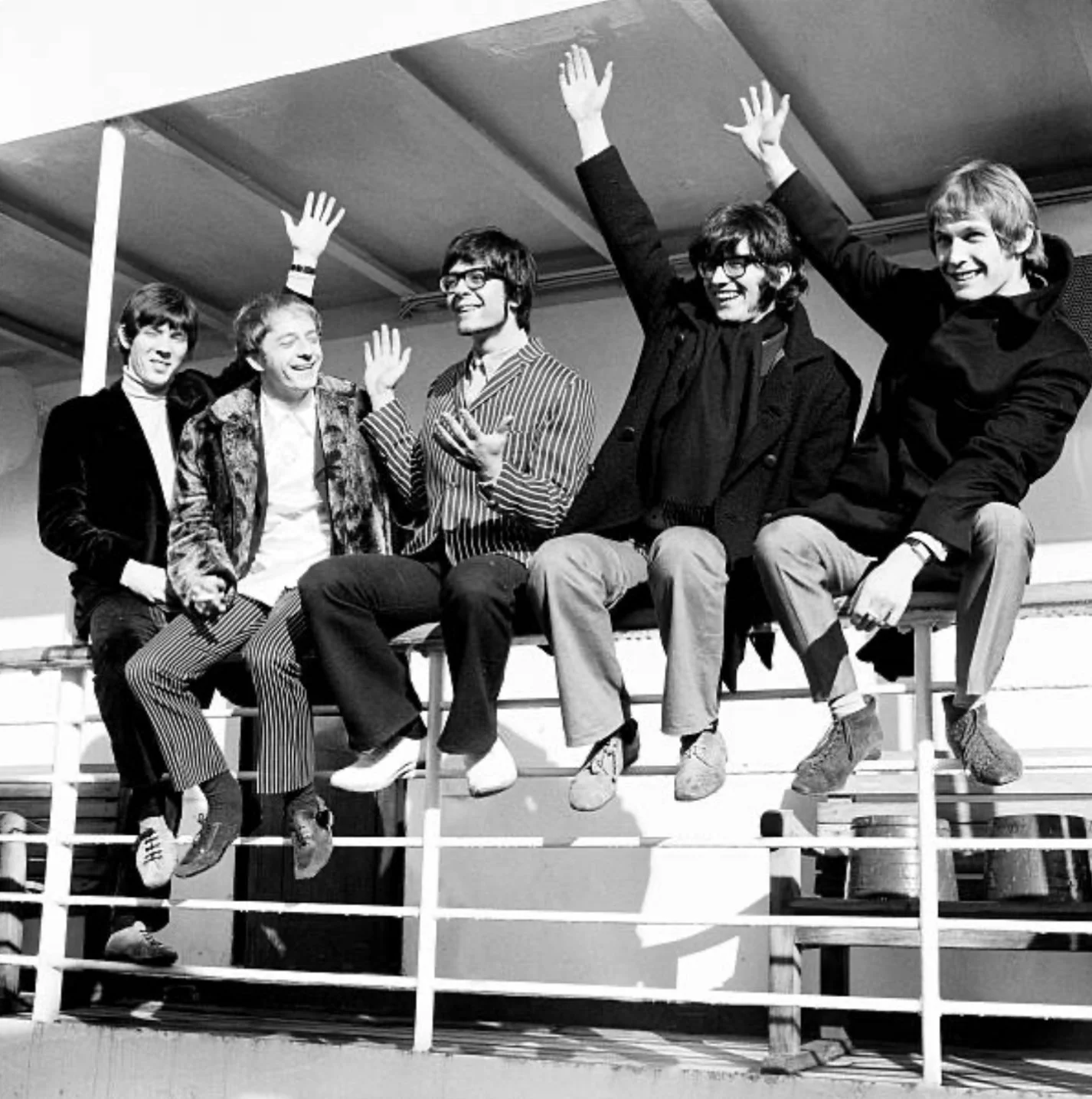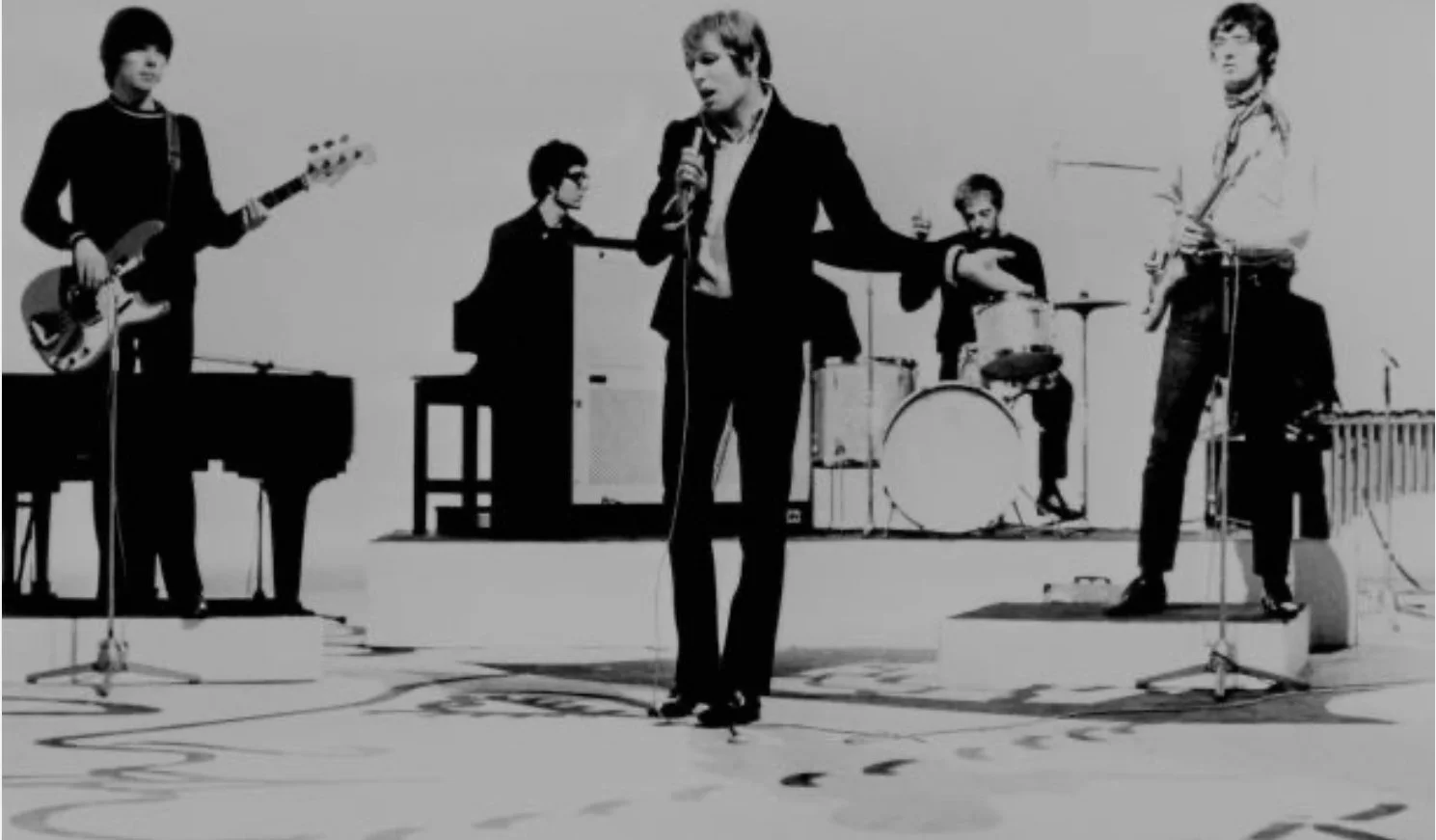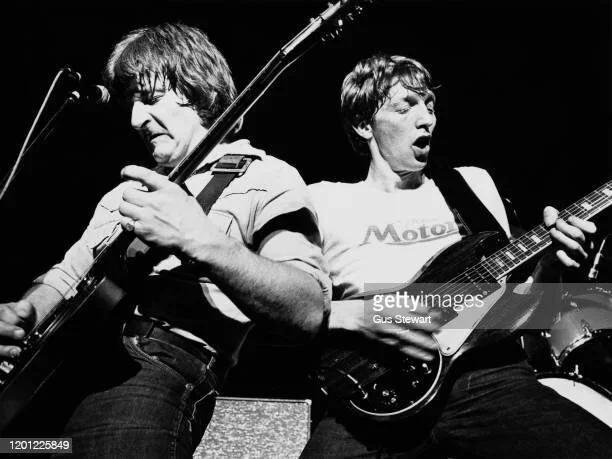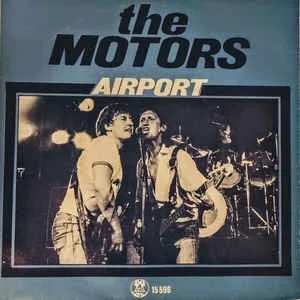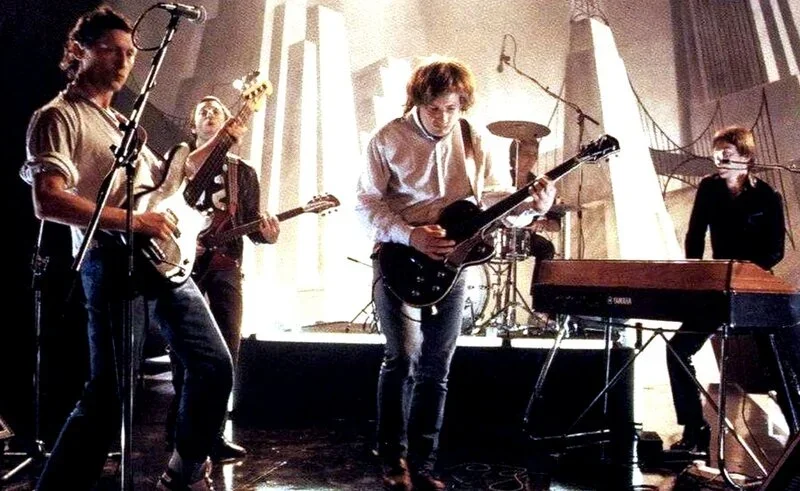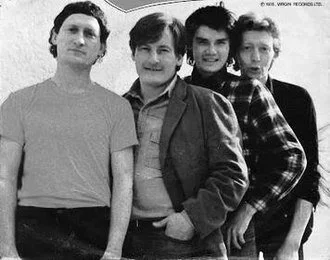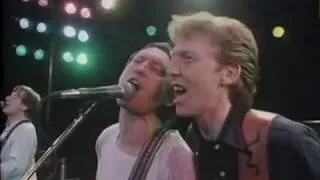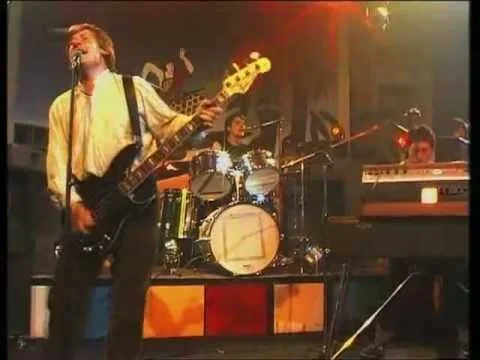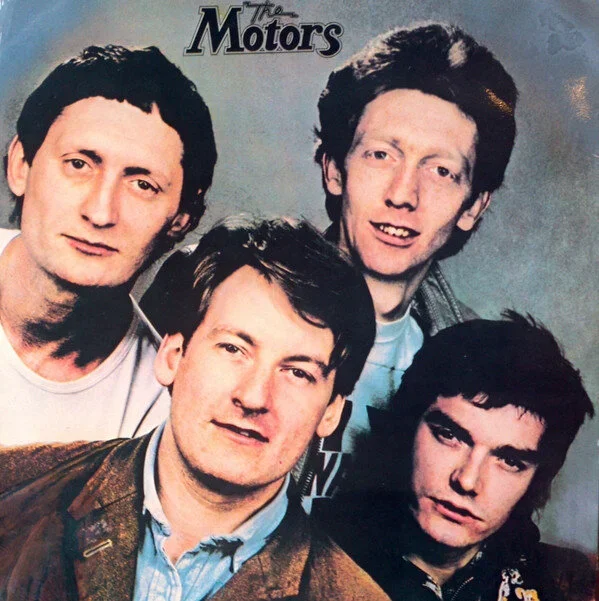On This Day, 25 October 1977, pre-new wave rock band Fabulous Poodles played Cardiff’s Top Rank. The band had recently released their John Entwisle produced debut album Fabulous Poodles.
The Fabulous Poodles were a British pre-new wave band formed in 1975. Known for quirky stage antics, such as exploding ukuleles, as well as songs with funny lyrics, The Fabulous Poodles toured with Meat Loaf, Sha Na Na, Tom Petty, Bill Bruford and Chuck Berry (as backing band).
They appeared on the Old Grey Whistle Test and for a long time were music critic John Peel's favourite group. The band released three albums between 1977 and 1979 on Pye Records.One of more memorable acts to rise from the British new wave scene of the late '70s, the Fabulous Poodles combined a lean, rootsy sound (complete with fiddle) and bar band stomp with an insouciant energy and a very British sense of humor that won them a cult following in the U.K. and the U.S.
Originally a pub rock act known as the Poodles, they released their first album in 1977. While the debut and 1978's Unsuitable were only modestly successful at home, their American debut, Mirror Stars (featuring tracks from the first two albums) sold well thanks to heavy touring and radio play of the title track. While 1979's Think Pink was musically strong, it didn't match the success of Mirror Stars, and in 1980 the band folded, though occasional reissues of its catalog kept the group's legacy alive
The Fabulous Poodles began life simply as the Poodles, a band active on the U.K. pub rock circuit. Formed in London in 1974, the Poodles featured Tony de Meur on lead vocals and guitar; Jon Bentley on bass and vocals; Bob Suffolk on piano; Bobby Valentino on violin, mandolin, and vocals; and Gordon Coxon on drums. (John Parsons, while never a proper member of the Poodles, would contribute songwriting to the group throughout its career.)
The Poodles earned a reputation for their eccentric live shows, featuring a strong dose of comedy and the use of props on-stage, and they landed a one-off record deal with Private Stock Records, which issued "Chicago Boxcar (Boston Back)" b/w "Love and Sorrow" in early 1975. The single flopped, and Bentley, Suffolk, and Coxon left the group (Suffolk went on to a successful career designing recording studios).
Bringing aboard a new rhythm section -- bassist Richie Robertson and drummer Bryn Burrows -- the group soldiered on as the Fabulous Poodles, and as punk and new wave became the latest news in British rock, their offbeat style and quirky humor found a context where they fit in.
In 1977, they signed with Pye Records, and their debut album, simply titled The Fabulous Poodles and produced by John Entwistle of the Who, appeared later that year. While the album received a positive review from rock critic and DJ John Peel and earned the band a spot on the BBC music series The Old Grey Whistle Test (where the group's antics managed to outrage host Bob Harris), the album didn't fare well commercially, despite extensive touring in the U.K. and Europe.


